|
Word Gems
self-knowledge, authentic living, full humanity, continual awakening
the Krishnamurti lectures
and
the true self
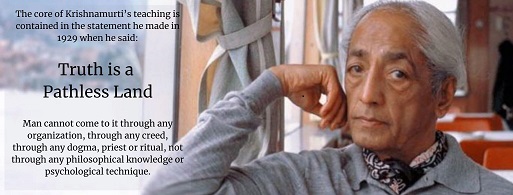
|
Editor's prefatory comment:
Planet Earth has always been a place of incivility, violence, and war. In the midst of this chaos, how shall we live our lives?
you must teach yourself
In 1000+ lectures, over 60 years, Jiddu Krishnamurti helped us to understand the human heart-of-darkness. He continually asserted that all belief-systems, all methods and formulas, divide people.
The world is filled with tens of thousands of competing doctrines of truth. And this clash of antithetical philosophies isolates and separates people into warring splinter groups; of "my god and your god."
universal experience
What is the solution? - not another method or belief-system, he said, not another set of "one true doctrines" to divide the world, but a universal experience, an "instantaneous" knowing, an "immediate" accessing of the answer; immediate in the literal sense of "without mediation." If we do this together, if each individually seeks "the life" within, then there will be no division among people.
Always, to the many audiences, he maintained that he was no one's primary teacher but, at best, could only point the way. Whatever insights or mystical revelations he might have gained were for him alone and were non-transferable.
Truth is not a spectator sport, we must seek for our own, from the "inner riches" of the soul. As such, we must teach ourselves; and this is why the Jesus of the Gospel Of Thomas jars us with "I am not your teacher."
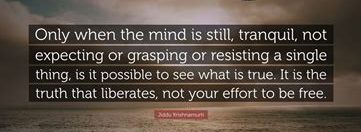
'truth is a living thing'
In his lecture at Stanford, Krishnamurti asserted that “truth is a living thing.” The essence of “what is,” the bedrock of reality, as the quantum physicists have learned, derives from a universal consciousness. It’s a living thing. It provides the hidden energy for bursts of “creative discontinuity,” islands of complexity and order in the midst of cosmic entropy.
It is the cloaked reason why minds have thoughts, persons have personalities, hearts beat, and lovers love. We come from life, life expressing life. And, if we “go within,” we might perceive its scintillating vitality; moreover, it will answer posed questions by offering a sense of right and wrong, a general direction. Truth is a living thing.
Krishnamurti. When the mind says 'I know', all it knows is what happened in the past. With this it approaches the present; but the present is changing from moment to moment. So the mind can never say 'I know'. The one who says 'I know' or 'I have found truth' does not know for truth is moving, living, never still, never static; and that is the splendour of truth.
'pathless truth'
This page features the lectures of Jiddu Krishnamurti. He spoke of a "pathless truth" toward wholeness and personal integration; of finding reality and God within one's inner being.
Accessing truth, he said, was "pathless," meaning individualized. You cannot reduce it to a formula, no "seven laws of success," no secret recipe; you cannot bottle-and-sell the truth "for $29.95," nor is there a prescribed, approved, or best avenue to it. It's custom-crafted all the way.
This means there are no infallible head-honchos, no holier-than-thou Dear Leaders; instead, each of us, each "made in the image," if we allow it, will be taught directly and personally, a private tutoring, by Universal Consciousness, via "going within."

Jiddu Krishnamurti
1895 - 1986
|
each of the following lecture summaries is also a link to a plenary transcription
behind belief is a desire to be secure
06.Jan.1952. Belief isolates. You may be a Brahmin, I a non Brahmin; you are a Christian, I am not. You talk of brotherhood, I also talk of the same, of love and peace, the unity of mankind. In actuality, we are separated, we are dividing ourselves. This high talk means absolutely nothing because belief is a process of isolation.
organizations cannot find the truth because of intrigues for position and power
20.Jan.1952 Question: We are [members of such-and-such religious group] seeking the truth. Krishnamurti: Can you seek truth in an organization? What you are seeking is not Truth but fulfillment of belief. Is Truth to be found collectively? When societies have vested interests in property, in belief, in knowledge, obviously, the people there are not seeking Truth. The moment you have organization, there must be intrigues for position, for authority, the entire game of it.
|
you cannot put out the begging-bowl for God to fill
27.Jan.1952:
Question: You have used the word ‘truth' often. What do you mean by it?
Krishnamurti: Truth must come to you, you cannot go to it. You cannot invite truth. You cannot beckon God, you cannot go to Him. You cannot put out the begging-bowl for him to fill.

See extensive Editor’s comments on how to find the truth, though it cannot be sought directly. It must come upon us “darkly,” which is to say, indirectly or in a non-programmed way.
READ MORE
|
03.Feb.1952: We see so much evil in the world, so much suffering caused by man’s own actions. Does this mean that one’s own person, a sense of self, as source of evil, should be expunged, gotten rid of?
07.April.1952. What is thinking? Thinking is a reaction. You respond according to memory, prejudices, your upbringing, to climate, to the whole background of your conditioning. Thinking as reaction comes to an end only when there is no ‘me’ at the center of thought.
15.April.1952. We do not see that we are escaping from ourselves constantly. These escapes are the real crux of our problem. We forever avoid facing ourselves. The mind projects illusions - like beliefs in reincarnation, in masters, - dozens of beliefs, - with which we have crippled the mind, made it so enclosed that it can never be free to approach our central difficulty, which is ourselves.
What is the point of this world, filled with war and violence? When we gain self-knowledge, the purpose of the world becomes clear without our asking.
16.April.1952. Question: I have lived through two catastrophic world wars. What is the point of this existence? Krishnamurti: Can you, as an individual, eradicate from your own mind those qualities that create antagonism, hatred, enmity? When we know for ourselves that we are free, then the purpose of existence comes into being without our asking.
can we be helped by another
03.Aug.1952. Question: I read the Buddha because it helps me. But you suggest that such help is superficial. Krishnamurti: Can we be helped by another? I may find temporary relief, but to find true help I must go within myself. It is only by understanding ourselves that we come to what is not of our own creation. But you cannot ask for that help. It must come to you darkly, uninvited.
24.Aug.1952. Question: I happen to be a successful business man of considerable means. I dropped by to hear your talk, and I saw at once that what you are saying is perfectly true. It has created in me a serious conflict, for my whole occupation is opposed to the kind of life which I now realize is essential. I don't see how I can return to my business. What am I to do? Krishnamurti: I wonder why some of you laughed? Was it a nervous reaction to cover up your own conflict of a similar kind? This man has realized there is much more than business, making money.
can true morality be taught, or does it come joyously, spontaneously, creatively
31.Jan.1953. Can love can be taught? If so, morality can be cultivated. But is true love, true morality, a function of conditioning? leading students to imitate? Is this education or the training of a parrot? The ‘respectable’ man we say is good, but it is a goodness based upon a desire to conform, to seek for security. We do not really seek true morality and freedom, but merely better conditions. The furtherance of this fear-based living we call education.
01.Feb.1953. Truth cannot come through choice. But our minds are capable only of choosing, differentiating. As long as we are choosing between what is good and what is bad, there can be no Truth because (1) the process of differentiation springs from a confused mind and (2) Truth must be accessed immediately, directly, as a total-field of vision.
15.Feb.1953. Question: I thought I was happy, but your talks have laid my life bare. What is the use of listening if it does not make me happy? Krishnamurti: Is it not important to be stripped off of all Illusions? Is it not important to find out what actually one is? You cannot deal with problems if you live in an illusory world. To see reality releases creativity, that creativity which is love.
|
there are times when no meditation technique will allay one’s grief

the movie Hostiles (2017), Christian Bale and Rosamund Pike
Elizabeth Barrett once said that we are not made of marble, stocks and stones, we have deep feelings. Emily Dickinson, too, described her sorrow as a funeral in the brain.
In the movie Hostiles a Mrs. Quaid has endured the massacre of her husband and three children. In her grief-crazed condition, for a time, she becomes detached from reality.
READ MORE
|
01.Mar.1953. Creativeness is a state of aloneness. When the mind is not completely alone there is no creativeness. It is only when the mind sheds all influences, all interferences, of being completely alone, without dependence, without a companion, without any moulding influence and judgment, that in that state of aloneness there is creativeness.
how to expunge sorrow and other mental confusions
31.Mar.1953. Question: My son is dead. How am I to meet that sorrow? Krishnamurti: We are forever running away from sorrow. We seek for distractions. But when we relinquish self-protective mechanisms, when the mind is not seeking any solution, is completely silent, in that state, sorrow ceases to be.
17.Feb.1954. A mind that is looking for the unknown, trying to experience the unknown, can never experience it. When the mind itself becomes the unknown, only then, there is creativity, that which is timeless. There is no answer to life. Life has no answer. Life has only one thing, one problem, which is living.
|
Marvel's The Watcher is like the mind’s silent background witnessing presence

Marvel's The Watcher, introduced in Fantastic Four #13 1963
The silent Watcher merely observes, does not interfere, will render judgment, a sense of propriety or lack thereof, concerning the activities of the thinking mind. It's the part of us that knows we're thinking.
It is consciousness aware of itself, observing itself. Emily Dickinson spoke of the same in her “This Consciousness that is aware.”
And when we enter this self-monitoring, it might be the most powerful aid in terms of unfolding the entire inner person.
like corn growing in the night
There are too many metaphors here within short compass, but -- how does transformative change transpire?
It will come to be, as Thoreau used the phrase in Walden, “like corn growing in the night” – imperceptibly, unobtrusively, unsensationally – and you will be decimated, your world rocked, by realization of what had been around you, all of your life, but utterly unapprehended.
READ MORE
|
03.Mar.1954. A man who is really free has no choice; he is free not to do this or that but to be; where there is choice, there is no freedom because choice springs from our conditioned state.
23.May.1954. Question: I have always tried to be sincere to my ideals, but you say they are destructive. Krishnamurti: If I have an ideal, I try to live according to it. The ideal is the creation of my mind seeking its own security.
with so many religions, everyone says there are many paths to truth, but there is no path to truth
28.May.1954. Question: If I were to follow you I should have to leave my church. Krishnamurti: To follow another is evil because it breeds authority, fear, imitativeness. You cannot be led to discover. But we are afraid, we want security. That is why we worship leaders. Everyone says, with so many religions, there are many paths to truth. But there is no path to truth. When the mind is free from fear, truth will come to it, and we won’t need a path to it.
an emphasis on experience retards spiritual growth
29.May.1954. Our minds are shaped from childhood by ideas and and experience. Therefore, experience never frees the mind, yet we are pursuing greater experience. When acquired, we hold it in memory, which strengthens cultural conditioning and limits the creative mind. Thus, learning is dictated by the past, so experience never liberates. An emphasis on accumulation of experience retards self-knowledge and true spiritual growth.
|
30.May.1954 - New York
Does seeking lead to reality? Do those who seek truly find?
The more important question is, why do we seek, why the constant restlessness and dissatisfaction?
Why do we follow a guru, a master, a saint, a savior? – someone to tell us what to do.
We follow what another says because, we say, he has fasted, practiced discipline, become an ascetic; we think he has arrived, found enlightenment, knows the truth, and so we go to him.
But is there anyone who can lead us to truth? Is this whole process of fawning imitation destructive, uncreative, stultifying?
We identify with a country, group, family, beliefs, dogmas. Why are we followers?
To identify with something is to give oneself safety, security, or prestige. It is building a wall around oneself through identification with what we think is greater than ourselves.
We do we want heroes, saints, icons? Should we seek for these examples?
And who is a saint? Because a church canonizes somebody, is he a saint? And what is your measure of a saint? It is according to one’s desires, hopes, and local conditionings.
The mind wants someone, something, to cling to, beyond itself. We want leaders, saints, examples to follow, to imitate, because within ourselves we are poor, insufficient, so we say, "If I can follow somebody, I shall be enriched". But we will never be enriched by this, and make ourselves the poorer.
Saints, leaders, heroes, have led us nowhere but to dependency. In all history, there has been absolutely no authentic transformation via such.
READ MORE
|
23.Jan.1955. Life is impermanent, not static, always in movement, in flux; but we want to make the transient thing permanent, that movement as something gratifying to ourselves. The conditioned mind is constantly seeking some form of security, consolation, permanency in some form.
man exists to find God and what is true
06.Feb.1955. As long as we have not found out what is true, what is God, that extraordinary something which fills life with greatness, goodness and beauty, all our activities can have only a superficial meaning. Surely, man exists to find God, not merely to earn a livelihood and adjust himself to a particular pattern of society. Society does not help man to find truth. But the man who understands what is true helps bring about a totally new society.
23.Feb.1955. We live with the choice between good and bad. But choice implies conflict and the very struggle to choose and maintain the good destroys creative release. Is it possible not to choose, thereby have no conflict, but always maintain the good? This maintenance of the good without choice brings about the fullness of energy making possible the mind to be still and know reality.
06.Mar.1955. We struggle to seek, to attain, to become more, but we may find that the whole process of seeking truth, perfection, God is a hindrance; the search itself may be a distraction. We strive, we discipline ourselves, we gather virtue as gathering grain, and yet we are not happy, have not found the inward joy, the creative revolution. Ironically, it may be that the mind can find that which is beyond time only when it is no longer seeking.
each of us must face, head on, the inner terror of 'I will never find happiness'
13.Mar.1955. We will never find the truth or God if driven by an inner neediness, an agitation to ‘be somebody’. What blocks our understanding? We use life to get something else, or somewhere, to escape from living and its inherent beauty and joy. Life is not a stepping stone to something greater. There is nothing greater. All search for truth with secondary motive will end in failure.
|
Can the eternal soul, the spirit, which does not exist in time, change in the realm of time?

Jiddu Krishnamurti
1895 - 1986
Krishnamurti, May 23, 1955: Can the passage of time change the inward nature, the inward being? Can the soul be reached through the process of time? Is there something eternal in us – the spirit, the soul – which is beyond time? Growth, evolution, change, becoming, all occur in the realm of gradualism, the domain of time, but how can the eternal soul, the spirit, which do not exist in time, change in the realm of time? Is there a part of us which simply is, inviolable, unaffected by the changes of culture, tradition, experience? Surely, God, or truth, or ultimate reality -- the Great Unknowable, the Immensity -- exist beyond the vicissitudes of the petty mundane, beyond the realm of time.
READ MORE
|
when you feel confused, don't fight it, just sit with it
26.May.1955. Question: I feel confused. How am I to be free of this confusion? Krishnamurti: Any endeavour to become non-confused is still confusion. When a confused mind makes an effort to be non-confused, that very effort is the outcome of confusion. Any answer I receive will be translated according to my confusion.
the true individual, never asking for encouragement, confirmation, or support
19.June.1955. Why do we run to psychologists, prophets, teachers, gurus, saviors, masters? Why are we always looking for support, confirmation, or encouragement? Why do we not find out for ourselves what is true? How can we be liberated from all following, all authority, from this sense of imitation, of conformity to a pattern laid down by any particular religion or philosophy? Can we search without fear of not discovering, of not finding a result, free from the desire to be recognized by society? The man who is capable of going to the very depth of things, he alone is the true individual.
24.June.1955. The deliberate process of bringing about self-improvement, the deliberate cultivation of a particular pattern or form of action, does not bring about real personal change, for it is merely a projection of one's own desire, one's own background. Any form of change in a conditioned mind gives only a different conditioning, not a transformation.
|
Is it possible to become good through effort and trying very hard?
13.Aug.1955. Can virtue be cultivated? through effort and will-power? Is virtue an end in itself? If so, it should lead to mental tranquility and contentment. Does it? The deeper issue is, can we be good without trying to be good? Is there a state of goodness which is not based upon effort? Why do we seek for goodness? Are we not pursuing something to achieve happiness and contentment? But a mental state of wanting something is a mind in conflict, and therefore we can never find true virtue and goodness by trying very hard to be good.
READ MORE
|
choicelessly aware means no hidden profit motive
21.Aug.1955. Watching one’s own thoughts will not induce the higher state if we watch with hope of reward: with this coin you are buying that, that is, your watching is a process of choice; therefore it isn't watching, it isn't attention. One must be choicelessly aware, which means no hidden profit motive. Only the disinterested mind will be shown the better perceptions.
an attentive disinterested mind will lead us to constant astonishing discoveries
28.Aug.1955. Some say “what’s next?” after listening to these lectures. There's an assumption that I have something you need and you want to get it. I have nothing to offer but advice that you observe your own mind. You, your own mind, is what’s important, not what I say. You cannot seek truth or God with a hidden motive of “what’s next?.” Your own attentive mind will lead you to constant discovery but only when you are not seeking a result at all. Then, you will see an astonishing thing come out of your attention.
|
Can the conditioned mind free itself from its own conditioning?
Krishnamurti was asked: If a mind is trammeled by its own conditioning, whence comes the ability to save itself from its own prison?
In the same vein, another question was put forward: You tell us not to rely on experience, that this is part of the past and not creative, but do you not rely on the experience of what you’ve learned in order to teach us?
What is the fundamental error in each case?
(1) The conditioned mind is not the liberating agent. It does not save itself. Human effort is not key. The “life within,” like a seed that wants to grow, automatically begins to change us when we become aware of, "simply noticing," our own conditioning;
(2) There is a difference between having experienced, which is the conditionings of the past, and a state of experiencing, which is something alive, dynamic, vibrant. The state of experiencing is part of the inner seed of life, burgeoning, vivifying, changing us, even inadvertently, without our effort.
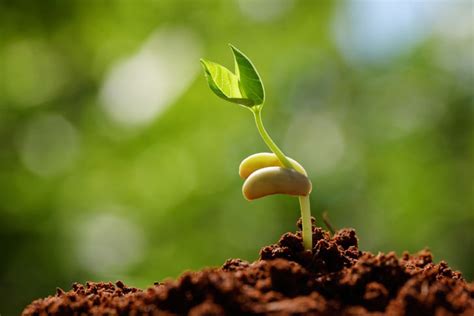
|
18.Jan.1956, To follow, to imitate, in religious matters is just as evil as to have tyranny in government because then the individual is completely lost. You are not individuals but merely imitative machines, the product of a particular culture. You are the collective, not the individual. You are all Hindus or Christians, with certain dogmas, beliefs, meaning, you are the product of the mass; therefore you are not individuals. To find out for ourselves we must be free; and we are not free if we merely quote Shankara, or some other authority. If we follow we shall never find.
|
'self-knowledge is the beginning of wisdom'
Krishnamurti discussed this crucially important concept in his June 16, 1956 lecture. We'll be going nowhere, stymied and stultified, high-centered like a big John Deere tractor stuck in the mud, until we learn how to access "self-knowledge."

Editor’s note: There was a time when I lived and died by the biblical proverb, “The fear of the Lord is the beginning of wisdom.” Who could say a word against this august and ancient rubric? - but I now see it's not correct. Atheists too can come to enlightenment and become spiritually minded. What is the real problem here? Any creedal assent, or unwarranted deference, is not prelude to finding the truth, is of no help at all. To believe or not believe are both forms of social conditioning. Saying “I believe in God,” for most, are mere empty words, something we learned to parrot from Grandma;

and to be smugly adamant that there is no God is also a prejudice and mind-virus, an expression of materialism. The point is, we need to find out for ourselves. Is there such an entity as God? a higher reality? something beyond? It does no good to repeat inculcated slogans, a mouthing of platitudes, of some Dear Leader, religious or political. No external authority can give us these answers. “Self-knowledge is the beginning of wisdom” because, as we'll discover, the truth is within us - part of our "made in the image" capacities and sensibilities - a living, bubbling cauldron of seething, creative, sentient energy, an augmented level of consciousness, which, when tapped, will reveal itself to us and, eventually, everything else. This is not some legal-fiction non-event like attending a church ritual or memorizing a catechism as we used to do. This is cosmic reality, and it will turn one's life right-side up, impart a new intelligence, offer an internal guidance system, and remain with us as eternal friend and guide - when we allow it. But what I say here is also mere words. You will need to find out for yourself.
|
12.Feb.1956. What is right education? Most parents want their child trained for a position in the social structure, to adjust himself to society, which is based on greed, envy, and ambition. You don’t want him to be a revolutionary, so you have this so-called education which merely helps him to conform, to imitate, to follow.
|
Emily Dickinson and the self-observing consciousness
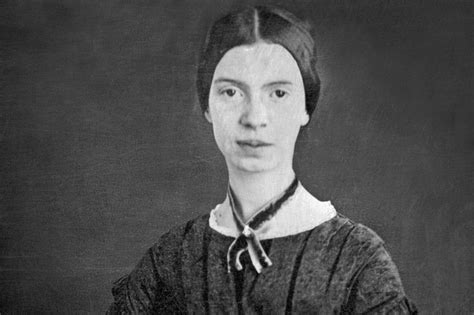
Emily Dickinson (1830-1886)
In a short offering of 67 words, "This Consciousness that is aware," the great poetess speaks 5 times of a Self that perceives "itself."
self-enclosed isolation, attended by its own identity
For all eternity, she says, we are "condemned" to a “self-enclosed isolation” of the Self witnessing to itself. This self-reflecting "friend down inside," Lincoln's phrase, shall be constant companion to our eternal existential journey; or, as per Emily, "attended by its own identity."
self, observing itself, will yet unfold the entire inner person
I have come to see, with concurrence by Krishnamurti, that simply noticing or witnessing one's own self-awareness is the catalyst to eventually unfold the hidden riches of the entire inner person.
READ MORE, Emily's "This Consciousness that is aware"
|
04.Mar.1956. What is truth, the authentic religious life? If one is merely being taught by another who asserts that he knows, or whom you regard as having achieved something, then you create a division between yourselves; there is always the teacher and the disciple, and a state of inequality exists; and such inequality, in spiritual matters is unspiritual, immoral, because as a follower, you destroy yourself, for you were meant to access a higher realm.
the moment of becoming a true human being
07.Mar.1956. It is essential for the individual to emerge from society’s conditioning. No one can lead us out of this confusion. Those who have known this unchaining experience a creativity as a deep living force. It is the instant of liberation from the collective. This is the fundamental issue. It is the moment of becoming a true human being.
11.Mar.1956. Question: When I listen to you, it appears to create and intensify my perplexity. Eight days ago I was without a problem, and now I am swamped by confusion. What is the reason for this? Krishnamurti: It may be very simple. Perhaps you have been asleep, and now you are beginning to think.
14.Mar.1956. We say that we are seeking truth; but what is it that most of us are really seeking? If you are at all aware, self-observant, you will know that you are seeking a [predetermined] result of some kind; you want some form of satisfaction, an inward stability or permanency, which you call by different names, according to the environment in which you have been brought up.
'being is doing', right action inevitably follows being
18.Mar.1956. Most of us are not concerned with bringing about the good mind. Action has become much more important than the quality of the mind. To me, action is secondary because when there is the good mind, then comes right action in a natural way; it is not 'doing is being', but 'being is doing'. Action inevitably follows being.
25.Mar.1956. Why has society lost respect for the individual? The fundamental reason is that we are pursuing power. We all want to be somebody, even in the family, the house, in the flat, the room. Each wants to be recognized as a big man, as a capable bureaucrat, a gifted artist, a spiritual person, and so on. We all want to be something, and the desire to be something springs from the urge to power. And this destroys respect for the individual.
'you fear death because you've never known a timeless moment'
28.Mar.1956. Question: Why is there such fear of death? Krishnamurti: All we know is the 'me', with its self-centred activities, and that is what we call life. Only that which comes to an end has a beginning; but we never come to an end. We never know a timeless moment, and so we are concerned about death. But timelessness is a state of mind; and as long as we are thinking in terms of time, there is death and the fear of death.
'We cannot change society; only the individual can change. But we are not individuals, are we?'
14.May.1956. Question: Juvenile delinquency is increasing. What is the remedy? Krishnamurti: Are not the roots of this problem buried in the whole structure of modern society? We grown-ups do not know how to live together, are battling with each other. We cannot change society; only the individual can change. But we are not individuals, are we? We are caught up in the mass of society. So long as we do not understand ourselves and free the mind from its self-imposed limitations, how can we help the child?
15.May.1956. What it is that we are seeking? We do not know the motives, the urges, the drives that are forcing us to seek at all. When these urges have become very clear, then life has a different meaning. When the mind is free from compulsion, the drive, the confusion, there may be no search at all, but something entirely different, the sense of being free.
22.May.1956. Does experience liberate the mind? What is this craving for experience? We know pain and pleasure, repressing one, clinging to the other. A craving for experience hardens into a centre of being, and from this centre we act. This hedonistic focus invariably limits the mind, making it impossible to know stillness and true creativity. Only the still mind, at rest with itself, with no need for experience, can know infinity.
|
one of K’s most insightful and profound lectures
12.Dec.1956. He begins by asserting that every level of society seeks to mould the minds of others. This social conditioning occurs because its perpetrators need something from this power and control.
A question came from the audience: Will there ever be an end to this societal “exploitation,” issuing “from the topmost government official to the illiterate drudge of the village.”
K’s masterful answer reveals a deep understanding of the problem which both afflicts and arises from each of us.
READ MORE
|
16.June.1956. The culturally-conditioned mind seeks only for what is promised by traditional creedal teachings. Therefore this search for truth is always conditioned, cannot reach beyond its own projections, and will be of no avail. It is only the mind, deeply discontented with tradition, that will freely inquire to see if there is a God or something beyond. “Self-knowledge is the beginning of wisdom,” but only those deeply discontented, no longer trusting in security from societal ways, will seek for self-knowledge.
23.June.1956. Can the mind be fully aware that it is lonely, empty? It is very difficult to be aware because we are always trying to escape. To know your own emptiness you must look at it; but you cannot look at it if your mind is always seeking a distraction. But to find that out for oneself one must understand the process of escape. In the very understanding of escape there is the stopping of escape, and the mind is then able to look at itself.
30.Sept.1956. Most of us think we must have ideals, heroes, lofty images, to entice us to change; but they are but a projection of the opposite of what we really are. We hope that by clinging to an ideal we shall achieve a radical change. To put it differently, what most of us are trying to do is to change through time, a gradual change. This is based on the principle, preached by religions and sacred books, "I am this, I must become that, and the change will come about in time, through discipline and control".
|
Some shamanistic tribal groups exhibit astonishing powers of mind.
Could we gain these esoteric abilities by studying these advanced peoples?
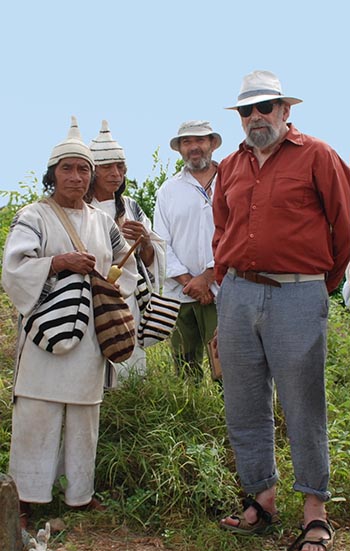
However, Krishnamurti asserts, “truth is a pathless land,” and avenue to it cannot be reduced to formula or method.
If this is the case, what role does the teacher play in the process?
READ MORE
|
10.Oct.1956. Is God, reality, truth a fixed point in time and space? Can we travel the intervening distance and reach it? which is why we say we must have time. But reality can never be fixed; it is immeasurable, alive, beyond time. Truth can be approached only when the mind has ceased to be caught within time, free from past compulsions, without movement, completely silent, no longer inquiring in order to be safe. This is why it's very important to understand yourself. Self-knowledge is the beginning of wisdom.
16.Dec.1956. As you are listening to me now, you already have certain ideas, prejudices, conclusions, which means that you are reacting according to the background in which you have been brought up; you are not listening to what is being said, but to these conclusions and interpretations, so actually there is no communication between us.
How do some escape 'the matrix' while others do not? Why do some see so much and are so different?
23.Dec.1956. How does it happen that one mind is conditioned and another is not? that some see so much and come out differently? There is a reality, an underlying pulsating vibrancy, which, coming upon the mind, transforms it. You don't have to do a thing. It has a being of its own. If you have it, and you've already got it, you will find everything is possible. The mind is an instrument of that creative living force which is the only means to bring about a totally different world. This creation-force is its own reality, its own eternity.
|
there is a hidden reality, unperceived by the five senses, Krishnamuti called it 'the immensity' or 'the state of creation itself' or 'that which is beyond the mind'; in each of his 1000+ lectures, directly or indirectly, he refers to this realm of ultimate truth
Plato spoke of this in his famous analogy of the cave. What we think is real is just a shadow on the wall. We're all deluded.
Kant, as well, was onto this 250 years ago. He used terms like “phenomena,” things as mere appearances, images in the mind, not real in themselves; and “noumena,” things in themselves, as they truly are, the actual essence of reality.
With common human sensibilities, said Kant, we can never know the noumena but only phenomena. We never access ultimate reality. In this vein, professor Kant instructed that space and time, grand examples, are merely representations of the mind, have no existence independent of human perception.
Over 100 years later, Einstein made all of this famous with his pronouncements on the “space-time continuum.” It’s not made of space, not made of time, not a combination of the two, but an underlying matrix of reality, something unknowable to us, giving rise to what we merely perceive as space and time.
The noted physicist David Bohm, too, posited "the implicate order" as the unseen spawning ground of visible reality.
Only several years after Einstein published his 1915 paper on General Relativity, Krishnamurti began to speak of 'the immensity' or 'the state of creation itself' or 'that which is beyond the mind'.
READ MORE on the 'prefatory' page
|
06.Feb.1957. There is no learning when the mind is waiting to be taught and merely accumulates knowledge as memory. We are accustomed to the teacher and the disciple, the one who knows and the one who does not know. There is falseness in this distinction, as there is neither the teacher nor the taught, but only learning. The whole process of living is religion, of self-discovery, but most want to be taught, which offers security, no inquiry, no search, no responsibility, no struggle.
10.Feb.1957. True religion is experiencing that which lies beyond the measure of the mind; but man is educated to conform to a pattern, not to doubt, not to inquire. Our problem is how to live in a world of envy, greed, conformity and also to experience that which is beyond the mind, call it God, truth, or what you will.
incapable of self-deception
20.Feb.1957. What is it that we're seeking? Why the frustration and unsatisfactoriness? Is there a kind of learning in which there is no teacher and no one being taught, neither disciple nor guru? Can we go into ourselves, step by step, inch by inch, to know all the subtleties, the intricate movements, of the mind? A mind which has understood itself in its totality is incapable of self-deception.
the unraveling of cultural conditioning is the primary revolution, can we unravel or follow a thought as we might for a thread in a cloth
24.Feb.1957. The undoing of knowledge is the fundamental revolution. Much of knowledge is the result of conditioning. It becomes our background, shapes our thoughts, makes us conform. Can I undo all that? We must follow a thought, say, envy, as we might follow a thread in the cloth. Can we unravel the feeling right to the end, to source? In this process, we must not name the feeling, difficult as this is. If we give it a name, envy, we immediately associate it with the past, our conditioning, and then the feeling becomes old. But if no name is assigned, then we’ll find that the feeling is entirely new, now has its own movement, its own activity. It has begun to undo the old thoughts, the old conditioning.
|
like a tree growing by a river, leaves always green, never failing to bear fruit

Golden Expressive Landscape oil by Vanya Georgieva
The enlightened person is not immune to the sufferings of this world. And yet, in the midst of unease, there is a sense of needing nothing, a larger perception of abundance and plenitude, a self-sufficiency, a quiet confidence.
One who has discovered the “made in the image” inner riches is ever nourished by Source. This hidden wellspring, an unseen reservoir of refreshment, allows the godly woman or man to prosper, or make the best of any situation, in the difficult classroom that is planet Earth.
Sometimes alone, with a preference for fellowship, but never lonely, and never afraid of death.
READ MORE

watercolor by Tree Landscape Painting Factory
|
03.Mar.1957. So much of our thinking is based on ‘becoming’. We want to become or have something. So there is a constant battle between what I am and what I think I should be. See the great irony: we pursue a program of 'becoming' because we want to achieve, but the truly creative accomplishments are the result of 'being,' which is the movement of creation itself.
transformation, easily, but not by effort or desire
29.Oct.1958. Why does the mind allows itself to be influenced, even with the intention of being influenced? When you see the vastness of your own social conditioning it is like seeing something enormously beautiful, a splendid sky. At the sight of itself, the mind becomes totally still. Then you will find that a creative release takes place; not because you want it to occur, but because that is the natural movement of Life.
09.Nov.1958. Can you look at yourself without words? You have an idea of the self, a picture, a symbol of the self. But can the mind look at itself without any symbol, without any word? But if the mind can free itself from the word, then you are able to look at it, without verbalizing. This wordless looking brings into being an entirely different state, a new quality to the mind, and this alone brings on the true personal revolution.
no such thing as a law of cause and effect or karma, as the mind is capable of immediate transformation
12.Nov.1958. There is no such thing as a law of cause and effect, no such thing as karma. In the interval between effect and cause there will be time. In that time there has been a tremendous lot of change and therefore the effect is never the same in all cases. And the effect is going to produce another cause which will never be merely the result of the effect. There is no cause, isolated, which produces an effect; they are interrelated. Sow a mango seed and it is bound to produce a mango tree - but the human mind is not like that. The mind is capable of immediate transformation within itself.
new sensitivity automatically comes to a blind person
16.Nov.1958. As long as I do not acknowledge that I am blind, everything I do is disastrous. But if suddenly, being blind, I acknowledge it, what happens? I develop totally new tendencies, new ways of perception, do I not? My touch becomes much more sensitive; I apprehend anything that is very close to me; a totally new set of reactions is set going; all my consciousness becomes astonishingly sensitive and acute.
30.Nov.1958. A mind that has accumulated a great deal of knowledge, that thinks it knows, is incapable of learning because it is full of conclusions, opinions, prejudices, beliefs and dogmas; such a mind has no humility, is never learning. Life is not a conclusion; it does not move from one fixed point to another, from one experience to another; it is altogether too vast, it is a living thing, immeasurable. Listen to something as if you really loved it. Here you are receiving no instructions, you are not a pupil. You are learning an art, and art cannot be reduced to algorithm.
07.Dec.1958. Without a sense of beauty one cannot possibly understand what is true. Truth is not merely an intellectual concept but a state of being, comprehends totally. We attach ourselves to dead mental images, not to actual living things. We attach ourselves to pictures where we had pleasure or grief, not to real people or living things. The mind is everlastingly attaching itself to dead things, as such, the mind is itself dead.

real change, or just changing masks
10.Dec.1958. Apparent change occurs under pressure, influence, which is no change at all; we think we are changing but are merely adjusting to the environment. It is putting on a different mask. Can you know the entirety of yourself immediately, or is it a matter of time? Change implies an impermanency which is seeking permanency. Is there a state which knows no change at all, always with a quality of freshness, newness, a sense of being, with a shadowless movement? with no time in the sense of being this striving to become that. Such a state does not demand change. It is in eternal movement, and therefore beyond time. Then there is action which is right, true, under all circumstances.
to seek for God implies we know what we're seeking for
14.Dec.1958. When you say you are seeking God, it is implied you already know what God is, what you seek for, but your conditioning has projected the idea that there is a God of a certain sort. So, thinking compels you to seek that which thought itself has projected. Self-knowledge is essential. A motionless mind, a still mind, is not dead, corrupt, as is the mind made still by a drug, by breathing, or by any system of self-hypnosis. It is a mind that is fully alive; and then every untrodden region of itself is lighted up, and from that centre of light it responds, without creating a shadow.
|
a governing concept of K’s 1000 lectures
24.Dec.1958. The individual is of the highest importance - even though society, religion, governments do not recognize that fact. You are very important because you are the only means of bringing about the explosive creativity of Reality. You yourself are the environment in which this Reality can come into being.
not condemning oneself unfolds the inner person
28.Dec.1958. True personal change is not an adjustment to environment but radical transformation. It will come about instantaneously, immediately, when there is comprehension, a perceiving of the whole. How to achieve this total-field perception? It must occur naturally, effortlessly. Most of us are in a state of contradiction. We think one thing but want and do another. Realizing this tension, we say “I must not think about that!” However, we are not to engage in this self-condemnation; trying to obliterate the contradiction by giving strength to one of the opposites. Instead, simply notice the tension, follow it, inwardly, back to source. This open and self-forgiving attitude, somehow, at the soul-level, allows the entire inner person to unfold itself. We begin to feel, not only our own condition, but the total suffering of man on planet Earth. When this occurs, a radical transformation of one’s person begins – instantly, effortlessly, spontaneously. Suddenly, more and more, the mind is set free from cultural conditioning, becomes a bubbling cauldron of creativity itself – sparks and flashes of insight every day -- and a new son or daughter of God, now, in a real sense, is born into the cosmos.
|
involuntary, radical, personal transformation
08.Feb.1959. To uncover the self, the whole structure of the self, there can be no authority, no guru to teach. There must be no condemnation of what you see in yourself but mere observation. When we observe anything, we immediately give it a name, cover it with symbol, translate it in terms of what we know. We do the same thing when we look at ourselves. What we need is a non-evaluative, non-interpretive mind. A mind set free from the chains of memory will involuntarily come to a state of quietness, alertness, and it is only then that radical personal transformation might occur.
11.Feb.1959. As we observe the mind we see that it is comparing what is being said by others with what is known or with some authority. Therefore the mind is not in a state of listening at all. But if you really want to learn the truth about yourself, then you are bound to listen without comparing.
with the collapse of the fabricated self, you will never again follow anyone
15.Feb.1959. There is no guru, no system, no belief that can lead you to truth. There is only the exploration of your own thinking. Once you begin to know the ways of your own mind, then you will never again follow anybody. We do not want to be deeply disturbed, which is why we immediately accept answers from traditional authorities. But the moment you discover that your mind is conditioned, the whole structure of the fabricated self will collapse.
the world fundamentally cannot be changed, but we can change ourselves - a cosmic event of utmost importance
18.Feb.1959. The individual sees evil in the world and asks what can be done. But he cannot prevent a war or starvation, or put a stop to religious bigotry and propaganda. However, it’s the wrong question. The individual's responsibility is not to the world, but to himself. We cannot change the world, but we can radically change ourselves -- a cosmic event of utmost and highest importance.
understanding the self is a constant, timeless process, with no end to self-knowledge
25.Feb.1959. When the mind says ‘I know’, all it knows is what happened in the past. Such a mind is conditioned as a Hindu, Buddhist, Christian, this or that. It is only in perceiving the conditioning that the conditioning can be broken. Truth is a living thing, constantly moving, cannot be pinned down. The truth within your mind, the self, cannot be held still, and therefore the understanding of the self is a constant, timeless process. There is no end to self-knowledge. The moment you see that truth is limitless, then your conditioned mind is freed from the known, and therefore able to penetrate into the unknown.
witnessing one's own confusion summons its own action, leading to inner revolution
08.Mar.1959. To see that the mind is confused has far greater significance than what to do. Most of us think that self-knowledge is a matter of information, of why the mind is confused. But there is no answer, no way out of its own confusion, because whatever way it thinks, it will still be confused. We must perceive directly. I must see that I am confused, that I have a vested interest in some system, ideology or belief. This very perception is enough in itself as it brings about its own action, which is the real revolution.
aloneness, not loneliness
11.Mar.1959. We are constantly trying to be this and not to be that. We have hidden wants driving us. We ever run away from inner hungers, creating a sense of despairing loneliness. We must understand these urges and go beyond them. Then we will find an aloneness which is not loneliness. But we cannot discover this without first understanding the deep neurotic urges to fulfill oneself.
22.Nov.1959. Most of you belong to various societies, you are committed to this or that group. See how little freedom and human dignity you have, because you are repeating what others have said. Why this compulsion to belong to something? Why identify oneself with a system, a group? Why do you want to belong? It is only the person who stands completely outside that can see Truth.
experience helps to negotiate technical things of the world, but experience, the traces of memory, cannot lead us to truth, maturity, the immeasurable
25.Nov.1959. We do not wish to be truly aware lest we become disturbed and bring ourselves to crisis, a prompting to action. Instead, we sedate mandate to change by clinging to tradition. We bow to the experience of others, also our own. Experience helps to negotiate technical things of the world, but these encrustations of memory do not lead to truth, the immeasurable.
benediction with no ending
29.Nov.1959. What is total action? It is action in which there is no contradiction, no duality. Such action must come without effort, for effort is the result of contradiction. The beauty of this inquiry lies, not in what is achieved, learnt or gained, but in the complete innocence of a mind that is free to see anew, the skies, the many faces, the rivers, and the rich land. Only a mind that has understood itself is capable of receiving the benediction which has no ending.
06.Dec.1959. Why is the mind so restless, as the sea, never stable, never quiet? What are we seeking? We say ‘happiness’ but our definition changes, and we're not satisfied when we win. There is a longing to arrive, to achieve, to become something. Truth does not come to a mind burdened with experience, full of knowledge, that has gathered virtue, has stifled itself through discipline, control. Truth comes to the mind that is innocent. You cannot seek for what will fill up the emptiness because you do not know what you're looking for. You cannot capture the Immeasurable.
09.Dec.1959. We divide the Earth into fragments, just as we inwardly are broken up. But the Earth is ours, yours and mine; it is not Indian or English, Russian or American. It is our Earth, to be lived on, enjoyed. It is a total thing, not to be broken up.
knowledge and experience do not change us at the core but cause the mind to adjust itself to a pattern of conditioning
13.Dec.1959. Experience, beliefs, and ideas do not change us at the core but, at most, cause the mind to superficially adjust itself to a pattern of conditioning. Most humans gradually drift into despair as they realize they will not find happiness. We must journey to the inner person. The distance to the stars is much less than within ourselves, which is endless, and requires constant inquiry.
breaking up the blockages of cultural conditioning
|
16.Dec.1959. Knowledge is cumulative and destructive to knowing. Knowing of oneself is never cumulative; it does not culminate in a point from which we judge the fact of what is the 'me'. This is our difficulty. Having accumulated knowledge through experience, from that background, we think, we try to function. From there we say, "I know all about the self.” But if there is no accumulation of knowledge then there is only the movement of knowing, which is instantaneous. In this state of attention, the blockages of conditioning begin to break up, with no effort on our part. In knowing, there is no psychological tomorrow. We always come to understanding in a flash, with no gradualism. Knowing creates a fresh, innocent mind, free of the past. This state of attention leading us to Truth is embedded Goodness. It is the only virtue; there is no other.
|
a mind established in authority is a dull mind
09.Mar.1960. A mind established in power is an evil mind. All power is evil, political or religious. In achieving power, position, success, the mind loses suppleness, alertness, quickness, its natural growth, gentleness. The virtues recognized by society create a dull mind: the search for power, position, prestige. It is not easy to be nobody, inwardly anonymous. But with a sense of anonymity, there comes action unconnected with the past.
mind is meant to be a state of creation, a light, to itself
21.May.1960. How can one free the mind? We are not truly creative, but with mere capacities for talent. I mean a mind which is a state of creation itself. We need a mind that can face its own loneliness and emptiness, a mind unafraid to investigate, to go beyond the limitations of culture-conditioned consciousness. Do not follow any guru, be a light to yourself, uncommitted to any activity considered religious or respectable.
|
‘total action’ comes about with no effort at all
This is an extremely important concept by Krishanmurti.
It is Lao Tzu’s ancient wisdom in a new wrapper:
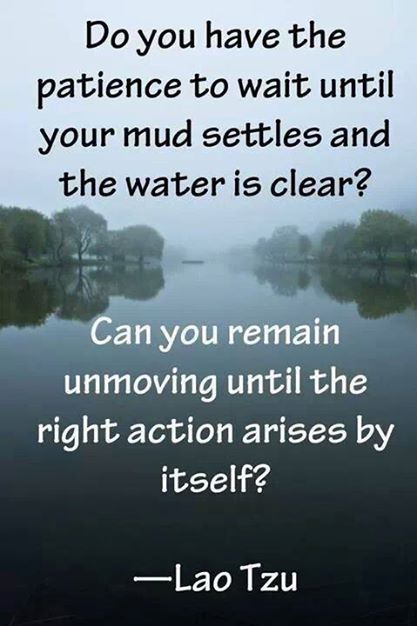
READ MORE - the Krishnamurti lecture of 29 Nov 1959
|
22.May.1960. Knowledge and experience are essential to much of life. But these can work against us in the field of self-knowing. This is so because knowledge and experience can be sought as shelters for the ego, offering a stultifying sense of “now I am something because I have knowledge.” A mind that revels in the security of knowledge and experience is a dead mind, can never be free, will never attain to mind as a state of creation.
28.May.1960. We want happiness, peace. We’re restless, we ever strive to become something. We search, we ask, we attempt to achieve. But we shall never achieve that perfect state, that answer, because it's not ‘out there’ but deep within. We already have it.
22.Jan.1961. How do we see things actually? Do we see anything, or do we merely interpret things? Do I see you and you see me, or do you interpret what you see and I interpret what I see? Interpretation is not seeing. Is it? Can I see without interpretation? Can you see me without giving all kinds of tributes, without evaluation, without judgment - just see me, with no name? The moment you name, you have blocked yourself from seeing.
12.Mar.1961. Words in themselves are not reality. The word "door" is not the door. But most are satisfied with words, and we think we have understood the whole structure of the universe and ourselves by words. How superficial our life is to be satisfied by cunning words. We quote, repeat, words of ancient books, indicating how shallow, how easily satisfied, we are by words, which are ashes.
|
What is the 'true self'?
August Goforth:
What, then, is Authentic Self? The ancient dictum “Know Thyself” is the eternal, and private, open-ended answer.
Once the question has been raised, the answer can be revealed only as truth reveals itself through our individualized Self of Authorship and its various states of conscious awareness, and as we become aware of the awareness. These states of awareness are experientially known through vibratory sensation, which is feeling.
Authentic Self will inevitably recognize the feeling of its pathless truth in its various states, thereby recognizing Itself as an eternal, immortal individualization as It moves inwardly from any felt point of “now,” and forever now, forever onward.
True alignment [and true spirituality] is tuning myself to the frequency of my Authentic Self. Upon alignment, everything is drawn back into correct placement relative to me. To the degree I allow this placement of the unlimited intelligence of the Universe — which is focused only on Harmony — I become a cooperative component of this Greatest of Harmonia Vitiae. (The Harmony of Life.)
Put briefly, alignment is ceasing to include the idea of limitations in my conception of the working of the All-Creating Spirit.
|
14.May.1961. Why does one accept the tyranny of authority? - of the priest, the printed word, the Bible, the Indian scriptures, and all the rest. And if one rejects this outer authority, is it possible also to reject the inner authority of experience, one’s social conditioning? which is far more destructive than outward authority as it leads to every form of illusion. We have been taught that great creative ability, an expansiveness of mind, is only for a select few. I feel it is possible for everyone. It comes into being, unfolds itself, when the mind starts with the nearest thing, which is itself, and unshackles itself from the chains of cultural conditioning.
16.May.1961. There is a state of mind which is above and beyond feeling, thought, and common desire. Desire for the ego is founded upon discontent.
28.May.1961. The ego, the self, is the residue of all memory and experience. This centre is always trying to conform to the present, or to absorb the present into itself, forever translating whatever it meets into terms of what is already known. In this process of translating, perceptions of the present, future, the self, the 'me,' are created... When you say 'I love you' there is always a division between you and that which you love. So long as there is division between thinker and thought, there must be conflict.
22.Nov.1961. To know what you are demands great attention, great quality of awareness - the way you sit, the way you talk, the way you walk, the way you look at the sky, the way you talk to your wife and children, the way the children talk to you. It is the basis of understanding. If you want to find the truth, if there is a God, if there is a thing beyond time, you have to know yourself, from moment to moment. This wisdom cannot be taught but from yourself.
|
The key to the Kingdom of Happiness is your own self. Do not look for external help, for your comfort, for your strength. These can be found only within yourselves.
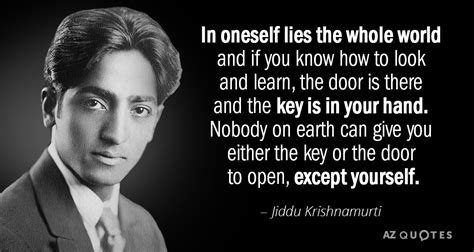
Krishnamurti, the 'dissolution speech,' August 3, 1929: "Truth, being limitless, unconditioned, unapproachable by any path whatsoever, cannot be organized; nor should any organization be formed to lead or to coerce people along any particular path… Truth cannot be brought down, rather the individual must make the effort to ascend to it... You are accustomed to authority, or to the atmosphere of authority, which you think will lead you to spirituality. You think and hope that another can, by his extraordinary powers -- a miracle -- transport you to this realm of eternal freedom which is Happiness. Your whole outlook on life is based on that authority... You are all depending for your spirituality on someone else, for your happiness on someone else, for your enlightenment on someone else… Organizations cannot make you free. No man from outside can make you free; nor can organized worship, nor the immolation of yourselves for a cause, make you free; nor can forming yourselves into an organization, nor throwing yourselves into works, make you free… Again, you have the idea that only certain people hold the key to the Kingdom of Happiness. No one holds it. No one has the authority to hold that key. That key is your own self, and in the development and the purification and in the incorruptibility of that self alone is the Kingdom of Eternity. So you will see how absurd is the whole structure that you have built, looking for external help, depending on others for your comfort, for your happiness, for your strength. These can only be found within yourselves. You are accustomed to being told how far you have advanced, what is your spiritual status. How childish! Who but yourself can tell you if you are beautiful or ugly within? Who but yourself can tell you if you are incorruptible?"
|
26.Nov.1961. Propaganda is the continuous repetition of tradition, of phrases or words, the dinning into the mind of certain ideas, which is destroying the mind, controlling the mind, shaping the mind according to the phrases of the propagandists. We must break this process else we are not human beings but mere machines recording certain pressures and strains. We are not thinking at all, but are conditioned by the past, which is the result of one’s culture.
03.Dec.1961. The authority of the priest is very strong throughout the world because each wants to be secure, safe, never to be disturbed. We do not really want truth, we do not really want God, we do not want understanding; we want more and more safety and security, and therefore we pile up authority, not only the authority of the book, of the guru, but also our own authority of theory and knowledge. But when you tear down the house of authority totally, then there is freedom with its own extraordinary sense of security.
10.Dec.1961. We need a new mind, not a reformed mind. More knowledge, experience will not bring fundamental change. Experience is knowledge and tradition. This knowledge is derived as response to external stimuli, leaving a residue we call knowledge. Psychological inward experience follows cultural conditioning. This limits the mind, invites rigidity, does not bring true change, strengthens images of the past, and from these I mechanically respond.
12.Jan.1962. Meditation is not the repetition of words and formulas, mesmerizing oneself into all kinds of fanciful states. If you take opium, a tranquillizer, it will give you marvelous visions, but that is not meditation. Meditation is a process of investigation into oneself… you will find out for yourself a mind that is completely free and has no borders, no frontiers.
04.Feb.1962. Watch your own conditioning. You must become aware that your mind is conditioned. Your religions are the result of other people's experiences, not your own direct experience. It is only when the mind is completely unconditioned that you can discover if something is real or not. It becomes a light to itself. Observe your own mind to see how cluttered and burdened it is with belief. Understanding yourself is the beginning of wisdom. Only such a mind can receive that which is Immeasurable.
11.Mar.1962. A mind dependent on experience as a means of advancement is dependent on time, on the past. These experiences are culturally conditioned and different for each person. We can never penetrate that which is beyond time, beyond experience, because experience itself limits us. But when we objectively explore the life within, that little beginning grows into the Immensity, which is not of time, which has no beginning and no end. And this is the Everlasting and the Immeasurable.
07.Aug.1962. There are two states of not knowing. In one, the mind says, "I do not know", and it is expecting or looking for an answer. But there is another state in which the mind says, "I do not know" and is not seeking an answer. It is only for such a mind that there is the coming into being of this extraordinary thing called creation.
|
concentration is a form of resistance, internal conflict, a mind at war with itself
Editor’s note: Krishnamurti made the point that a mind which is concentrating, that is, trying very hard with will-power, is in a state of resistance, an internal conflict and strain, a condition of war with oneself; and a mind suffused with resistance of this sort will never find ultimate truth. Concentration is very good for many things, like working a math problem, crossword puzzle, or finishing a cleaning task at home, but concentration can never take us to that elevated field of awareness in which dwells higher creativity and keener perceptions. For this, we need a certain silence of mind, an absence of thought, not more of it; we need to find the off-switch to the “voice in the head” which suppresses the upward percolation of one’s soul energies, an augmented form of intelligence beyond the thinking mind.
concentration is not the same as attention
Editor’s note: K has spoken of concentration of the mind, which, he says, is a form of resistance, precluding the discovery of the truth. However, here K speaks of “attention,” a different concept, as necessary element in truth-discovery.
“You can’t make the creative act happen. You have to do certain things, otherwise it won’t happen. But it won’t happen while you are doing them.”
“What is required is an attentive response to something real and other than ourselves, of which we have only inklings at first, but which comes more and more into being through our response to it – if we are truly responsive to it. We nurture it into being; or not. In this it has something of the structure of love.”
- Dr. Iain McGilchrist, The Matter With Things: Our Brains, Our Delusions
|
15.Jan.1964. To understand the thing called truth one must give untrammeled attention. You cannot learn it from another, nor can another lead you to it - the truth is not put together by man in his fear and despair. It is not a tradition, a repetition, an instrument of propaganda. Truth made manifest by another is not truth for you. You have to find it for yourself. You cannot set about deliberately to find it but must come upon it unknowingly. You cannot do this if your psyche is not completely free.
19.Jan.1964. Humility is not a virtue but a state of being - we have it or we don't. We cannot come by it gradually, cannot cultivate it. Virtue is something not within the field of time. cannot be accumulated. It is ‘being good', not 'becoming good'. The two things are entirely different.
08.Nov.1964. If we become aware of every thought as it arises, not judging, not condemning, not accepting - just being attentive - then we will see that the mind becomes extraordinarily quiet. It is not forcing the mind with will power. In this heightened attention, the mind enters its own unsolicited, non-repressive discipline.
|
reprinted from the WG homepage:
massive self-contradiction
Consider this stark contrast: Dr. Federico Faggin may be the greatest inventive-genius mind in the world today. He’s also a leading researcher in the new science of consciousness. And he says that the most fundamental attribute of Universal Consciousness is a desire to know itself. Therefore, as our own consciousness exists as derivative, our own most deeply embedded penchant mirrors an ideal form.
Is this not incredibly ironic? Freud told us that our greatest fear may be to know ourselves, and yet it’s also our greatest craving! We must ask, what is the psychological fall-out, the inevitable dysfunction, of this massive self-contradiction?
embedding ourselves in other-power
Over the years, I’ve often thought of Anderson’s standing defenseless in the open sunny air. For this is exactly what we are unwilling to do. Instead, as Dr. Ernest Becker employs the phrase, we “embed ourselves in other-power.” What does this mean?
Almost 100% of the perplexed and besieged denizens of planet Earth are engaged in some aspect of cultism, be it the political, religious, or corporate variety. Cultism is not what you think. It is to unwarrantedly seek protection, in a hostile and uncertain world, a surrendering of autonomy to various forms of Dear Leader. It is to refuse to stand defenseless in the open sunny air. All this fear-of-life leads us to repression.

Erich Fromm: "The main task in everyone's life is to bring himself to light."
|
03.Jan.1965. One who deliberately sits down for meditation is as far from reality as one who has no idea of living. Your concentration is a form of resistance, makes the mind more and more dull, more and more insensitive. This creates endless conflict; and a mind in conflict is insensitive, and you need the highest form of sensitivity, which is intelligence, to discover this thing called "silence".
|
10.Feb.1965. Society is not transformed through any revolution, economic or social. We have seen this through the French Revolution, the Russian Revolution. The everlasting hope of man, that by altering the outward things the inward nature of man can be transformed, has never been fulfilled, and it will never be… you must learn about yourself, from yourself, not by what you have been told by religion and sacred books.
For most of us, change implies a bargaining process. I would like to change; and so I begin to bargain with myself whether it is profitable or not, whether it is worthwhile or not; so change implies a bargaining... [If we're run by the ego,] we change if it is profitable, if it is pleasurable; or we change when it is painful. But any change, with bargaining, is no change at all.
|
14.Feb.1965. Exercising the will is effort; under any circumstances, this perverts the mind. All effort destroys spontaneity, and then you are mechanical, dull. Goodness will flower naturally. If you make an effort to be good, you are no longer good.
17.Feb.1965. Desire comes when there is a feeling of missing, wanting something. But this creates internal conflict, dulling the mind, which is to be fresh, young, innocent, not tortured, bullied, twisted.
21. Feb.1965. Most of us listen with our own internal noises of chatter, of opinion, and never listen to the fact… Relationship is a movement and not static, demanding that we learn about it constantly… All our tradition, the habits, has set the mind in a particular groove, and we follow it easily and do not want to be disturbed in any way from that groove.
just be aware of what’s going on in your own mind, and then the whole field of consciousness will begin to unfold itself
03.May.1965. Within ourselves, there is always a centre, a “me,” which becomes an observer. But the observer divides itself from the thing observed, and therefore there is a space between the thing observed and the observer. This space causes conflict in the world.
06.May.1965. Is there such a thing as real change? We remember ourselves from childhood days and realize that we’re still the same person. This can cause us to question, is change even a possibility?
09.May.1965. The experience of going within, its profound effects, comes to us without effort, and instantaneously. There is no super-human effort, no constant awareness, no constant examination, no constant watchfulness, of and by itself, to make all this take flight.
16.May.1965. Question: "What can we do to be aware, to be attentive?" Answer: "I don't think you can do anything. All that you can do is to be attentive to inattention."
15.July.1965. Will power is based on pleasure and resistance, and whatever order it may bring is actually disorder. Change must happen without deliberately wanting to change. Change is like virtue. Virtue that is cultivated ceases to be virtue.
01.August.1965. The beauty I am talking about offers no stimulation. It is a beauty not found in any picture, any symbol, any word, any music. That beauty is sacredness, a mind that is clear in its self-knowing. One comes upon this beauty only when all desire for experience has come to an end. A mind that is seeking experience will interpret experience by past conditioning.
|
What is the ego? - it is the part of ourselves which believes itself to be, or has identified with, the body.
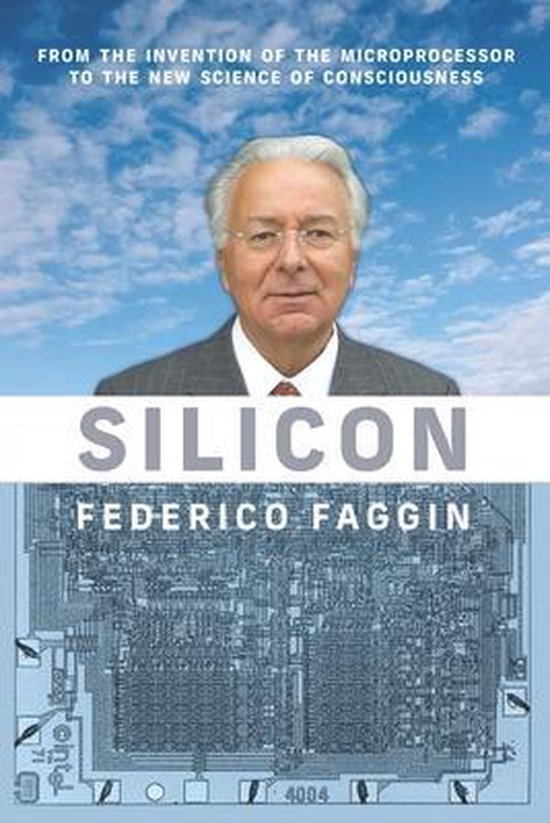
Dr. Federico Faggin, interview with Bernie Beitman:
What is the ego? The ego is what we think we are. The ego is a portion of myself, part of the vaster self which does not exist in spacetime, the portion of myself that believes itself to be the body [which does exist in spacetime]. This means that the ego pays attention only to those [electrical/chemical] signals produced by the body.
Scientism says, “That’s all there is, just physical matter,” but the body [with the brain] is a filter shielding us from a deeper reality, the higher self. The ego is conscious only of an infinitesimal amount of information, only a tiny fraction gets through the filter, that would be available from the deeper reality, the higher self. Enlightenment is breaking through this filter and accessing the deeper reality and higher self.
Why are we here on the Earth?
We're here “to eliminate the distortions of who we are and what reality is – in other words, to know ourselves,” to discover that we are much more than the physical body and connected to a vast unseen reality.
a computer has no interiority, no avenue to qualia, no concept of meaning or comprehension, but exists only as a collection of on-off switches and cannot rise higher than its programming
Dr. Federico Faggin, Silicon:
“Perception is the process that translates the electromagnetic and electrochemical activities of the brain and body into qualia.
Editor’s note: Qualia are the inner feelings one experiences, for example, when encountering the scent of a rose. A computer is able to recognize an image of a rose, but it has no interior sensations or qualia concerning the smell of a rose or the painful feeling of being stung by a rose thorn.
“We experience the world through qualia, but qualia are neither electrical signals not bits stored in memory… When we say we are conscious, we mean that we perceive qualia – that we have an inner experience based on sensations and feelings. A digital computer that has an image in its memory produced by a digital camera is not at all aware of that image as qualia, even though it has the data that inform our qualia. Qualia are the carriers of meaning. The process of obtaining meaning from qualia is called comprehension…
“At this point you could ask: ‘What is the difference between consciously acquired meaning and the unconscious learning acquired by a computer? If the results are the same, what difference does consciousness make?’ In fact, many researchers consider consciousness as unnecessary to achieve intelligent behavior. For them, a machine can be as intelligent or even smarter than any human being, with or without consciousness.
“This view is based on an inadequate definition of intelligence that does not consider the fundamental, creative aspects of comprehension, intuition, insights, and imagination.
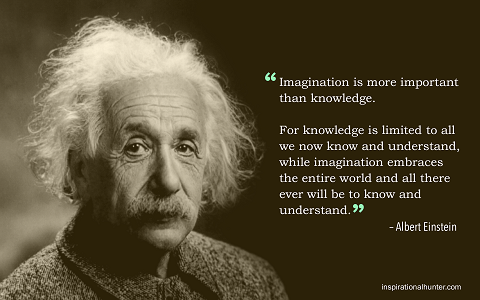
"That same reductionist mindset neglects the fact that without consciousness we would be zombies and life would have no meaning or purpose.
Editor’s note: Qualia – meaning, comprehension -- cannot be reduced to electrical signals, computer bits, or mathematical algorithm. This is why Nobel Laureate Sir Roger Penrose, along with many others, has asserted, “Consciousness is not a computation,” which means that the higher, creative levels of intelligence will never be accessed by computers, which are, forever, mere machines. If AI becomes a threat in the future, it could occur not by an uprising of the machines - they could never have a concept of 'uprising' - but by totalitarian humans who would use the machines to enslave mankind.
“On the other hand, when the consciousness of a human being is completely identified with the body and with the logical mind [what we call the ego], the person’s creative potential remains largely unused, and his behavior may become just as mechanical as that of a computer.”
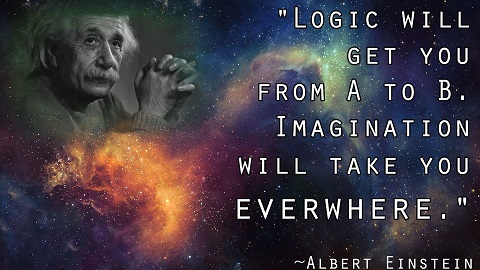
|
08.August.1965. 'Anger is a reaction, and I know I'm angry. It is something outside of me. I don't say, "I am anger", but "I am angry". When I say "I am anger", there is no distance. That is what is. But when I say, "I am angry", there is a distance'.
when personal security is threatened, even subtly, then we become hateful, defensive, aggressive, violent
07.Nov.1965. Why are we human beings violent? violence as anger, hate, fear, accepting authority, asserting oneself constantly, hating - why? Because each one of us wants security. When your security is threatened, when your country, your ideas, your concept of what God is, what truth is, what should be, or not be - which makes you feel so completely insecure - then you become aggressive, violent.
11.Nov.1965. To find out whether there is a Reality called God, or some other thing, your mind must be completely silent. When a scientist tries to solve a problem, there is great attention given to the issue, and this intense focus quiets the mind, in a natural way. But some who seek for God believe that the mind must be quieted in a strange way, by chantings and posturings, but this cannot quiet but only dull the mind.
|
Can personal change, human evolvement, be effected by will-power, force of effort, or does it come in a natural way, like the effortless germination of a seed that naturally blossoms?
I’ve discovered a contradiction in my writings.
Sometimes I’ve said that human development is like a weight-lifter developing muscle by exertion. There seems to be a “potential benefit in pushing back against the difficulties of this world.” For a very long time, people have called this “character-building.”

But I also frequently say that the perfection of the human spirit “is not obtained by trying very hard, by religious rituals, prayer, fasting, vow, or pilgrimage - but simply by quietly observing the inner disorder.” The developing human potential “is like planting an acorn; within, lies dormant a towering, mighty oak.”

Both of these views have merit. How can we reconcile this apparent paradox?
READ MORE
|
14.Nov.1965. Is there a thinker at all without thought? Is there space without the object? There is this object, e.g., the microphone in front, it creates space round it and is in space. You have to understand this whole, very extraordinary question of space. Unless you know space without the object, your mind will always remain in limitation and therefore there is never freedom.
25.Nov.1965. Is real change possible? What moves us to change? I want to change but I feel violence deep within, and how can I change when this negativity holds me fast?
|
common definitions of 'meditation' are errant
“Meditation”, as defined by the popular culture, is fraught with error and takes us wide of the mark. It is not primarily about controlling or stifling the mind, which is a quantum field of possibility that cannot be shut down, not without dulling the mind.
Properly construed, meditation, the kind that fosters real spiritual growth, is effected by “simply noticing” the behaviors of the mind. Krishnamurti addresses this subject in many lectures but of note are the talks on May 7 and May 10, 1966.
simply noticing
Why is “simply noticing” efficacious to our success? The “made in the image” inner-life is like a seed – call it a “God-seed”, the nucleus of what we are to become. How to germinate this seed? Not by moisture and warmth but “simply noticing.” The inner-life naturally wants to burst forth, we don’t have to supervise it. As with all seeds, there’s no huffing-and-puffing to make it grow – as Jesus said, “my teaching discipline is easy, my burden is light.” There’s no effort to make this happen, but only to “notice” the antics of the mind.
germinate
This “noticing” reduces the strength of the ego in our lives, and, in consequence, the God-life within naturally germinates and begins to assert itself.

Like the proverbial tiny mustard seed growing and growing, eventually filling the heavens, over the coming years, and into the next worlds, the God-life within will inexorably burgeon and transform one’s mind, heart, and being, in a totally natural way. There’s nothing for us to do but to mentally observe the inner life.
READ MORE on the “simply noticing” page
|
13.Feb.1966. How can I love you if you have an image about me? What does it mean to destroy the image about yourself? You cannot stop thinking, but you can think and not create the image.
16.Feb.1966. Listen to those crows. If you listen with complete attention, there is no irritation, there is no conflict; you do not say, "I wish they would go away". It is only when you are inattentive that there is conflict. You cannot train yourself to be attentive. But you can be aware that you are inattentive.
23.Feb.1966. To most of us, freedom is not important at all. We do not want it. We are frightened of it. We would rather depend, would rather live in the old pattern, in a particular society, culture, environment, and rely on external authority.
27.Feb.1966. As long as there is the thinker and the thought, there must be duality. As long as there is a seeker who is seeking, the experiencer and the thing to be experienced, there must be duality. Duality exists when there is the observer and the observed.
31.March.1966. If we are conditioned by belief then we are not free to investigate. There is pleasure in conformity. I want to conform to society because it pays me, gives me profit.
03.May.1966. Every human being is caught in time. Not chronological time but time as movement of the infinite past, moving through the present to some future. As long as I am caught in that, there is no end to sorrow. I say to myself, "I'll be happy tomorrow.” But to end suffering I must understand time.
07.May.1966. "Meditation isn't apart from daily existence. One can't be ambitious, ruthless, vulgar and at the same time talk about God, truth, love. Meditation is a most dangerous thing. To be aware of the total process of existence, without choice, to be completely attentive, makes the mind tremendously active and revolutionary, not a domesticated animal, conforming to the pattern of society. This is dangerous because you may have to alter the whole structure of your life. Unconsciously, you know the danger of it, so you get nervous because you want to lead a secure life. What is being talked about might destroy all that. You will no longer be a Christian, or an Englishman, or an Indian, or this or that. You'll belong to no group, no sect. You'll have to be tremendously alone."
|
Can psychedelic drugs become an avenue to enlightenment?
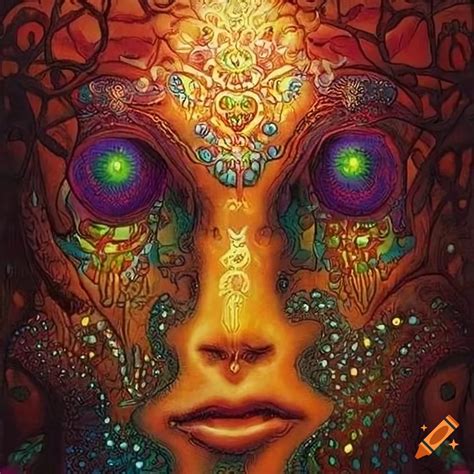
In season 2 of Graham Hancock’s Ancient Apocalypse (featured on Netflix), he discusses how South American tribal peoples employ a plant-based psychedelic drug, “ayahuasca”, to achieve altered states of consciousness.
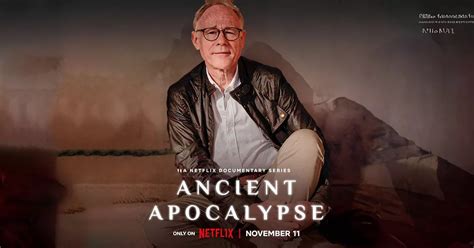
Shamans, under the influence, reportedly speak to the dead and become privy to special knowledge. See a TED talk given by Graham.
I do not doubt that ayahuasca or LSD or other hallucinogens might produce psychedelic visions or altered states. Krishnamurti offered his opinion on this 60 years ago (see various lectures on this page).
However, the discussion offered by Graham suggests that the ayahuasca-induced delirium, if I understand his message correctly, opens the door to an advanced or evolved level of consciousness. This is gross error.
Having visions, or hearing voices of the departed, is one thing, but none of this has anything to do with authentic enlightenment. A true spiritual awakening is a stirring of the soul. And nothing external can reach or move the soul.
This is so because the soul is linked to God, and good luck to us trying to leverage God to do anything. The soul has its own timetable for blossoming, and remains unmoved by what we do, either healthfully or destructively, at the surface of personality.
Any external inducement as attempt to stimulate the mind will yet devolve to a dulling of the mind. This occurs because one becomes dependent, reliant upon, and finally subordinate to, the stimulant. This narrowed and creodistic mind steps down to the mechanical, repetitive, formulaic, and no higher creativity can spring from these depleted soils.
But authentic enlightenment is totally led by internal soul-energies, and needs no stimulation. The real thing – which is much more than, or even different in kind from, visions and voices – needs no propping up with another fix of the bubbling brew. It will sustain you, it will prop you up, and you won't need to do anything for it. But this subject has been covered many times in several WG writings.
Not all tribal peoples access high-grade altered states. Those which use chanting, dancing, campfire-light, sexual euphoria, rituals, and hallucinogenic drugs – anything external -- to induce swooning kaleidoscopic visions are gaming the system, and have not yet tapped into the real stuff as underlying fabric of the cosmos. This would be Universal Consciousness.
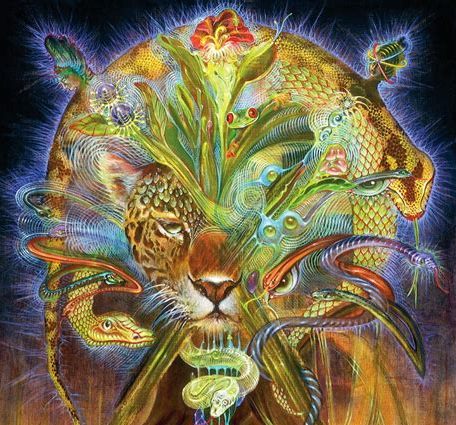
In the main, true enlightenment has nothing to do with kaleidoscopic visions. There is something awaiting the seeker of ultimate truth that far transcends flickering lights, tinsel, and glitz. No one who has ever experienced the real thing would even bother to cross the street for the strobe lights in the head.
Here is one sister-article which speaks of these ersatz external inducements to awareness.
We feel uplifted at the singing note of a bird, a blossoming rose, and with a woman’s grace and loveliness. But can any of these bring about a transformation of heart and mind? Is her mystical allure a basis for authentic love and marriage?
|
|
Krishnamurti advises that the popular meditative ‘lotus position’ will not aid and induce enlightenment

In fact, he says, it will take us farther afield from the mind’s natural receptivity of higher inspiration.
attentiveness to inattention
Instead of posturing and chanting, what is needed is attentiveness to inattention.
READ MORE
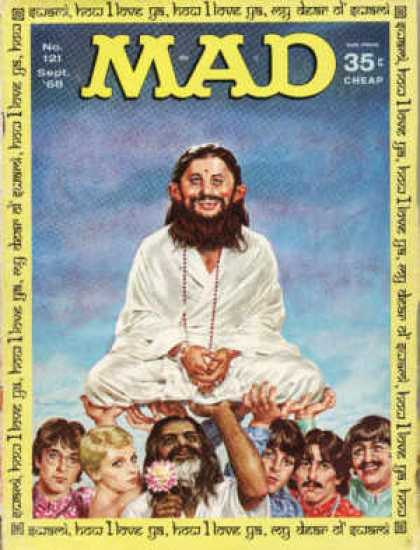
|
10.May.1966. "Mere acquisition of knowledge, mere listening to ideas, to many talks, does not bring wisdom. What does is self-observation, examination of ourselves… if you become aware of your own loneliness, then you will see that the thing you look at is different from the observer. The loneliness is not you... It is not a practice, a discipline, which makes the mind quiet. What makes the mind really silent is the understanding of itself."
26.May.1966. “When one is awake, with Light in oneself, there is no seeking. Only the man in darkness is always searching for light, for more experience…A monkey is restless, scratching itself, chattering, endless movement. So is our mind. One says, ‘I must control it’ and concentrate. We don’t realize that the entity demanding control is still the entity that is like the monkey.”
29.May.1966. “There is a centre in each human being; that centre creates a space around itself, as these four walls create a space within them. Man wants physical space, but he never wants psychological space. There he is satisfied to be a prisoner, of his own ideas, conclusions, beliefs, dogmas.”
26.Sept.1966. "One of our major problems is violence, not only outwardly, but also inwardly. The whole structure of the psyche is based on violence. This constant effort, this constant adjustment to a pattern, the constant pursuit of pleasure and therefore the avoidance of anything which gives pain, discarding the capacity to look, to observe, all these are part of violence."
|
Will we still have to battle the ego's selfishness when we transition to Summerland? Can it be removed? Do even the ancient Spirit Guides still have to deal with this egocentrism?
Further, there are many teachers on the other side who say it’s easier to learn our ‘kindergarten’ lessons here, on the sorrowful planet Earth. What do they mean by this?
READ MORE
|
28.Sept.1966. The mind must become entirely free of the bondage of time, go beyond the structure of thought, a timeless dimension wherein the mind is no longer caught in its own structure.
30.Sept.1966. The first thing is not to be committed to any organization: We accept teaching, hoping there will come a certain clarity. Can the mind be in a state of non-commitment? Not to be committed implies to stand completely alone; and that demands great understanding. Then one is really not afraid.
03.Oct.1966. A society that has not understood the problems of time, death and love will be very superficial; and must inevitably deteriorate. "Superficial" is to be contented with outward phenomena, with outward success, with prosperity, having a good time and demanding entertainment. Society must inevitably deteriorate, whether we go to church or to football games. These are just the same. People go to them because they need to be entertained, stimulated [as opposed to finding a life within].
|
'Most of us look at problems with a conclusion, an assumption; we are not free to look, not free to observe what actually is.' Krishnamurti, Feb 03, 1969
How can we seek for the truth, God, or reality when we have no idea what these concepts mean? Yet we begin with a conclusion, think we know what we're looking for.
August Goforth, "I Don't Know," May 14, 2025:
When you completely accept this moment, when you no longer argue with what is, the compulsion to think lessens and is replaced by an alert stillness. You are fully conscious, yet the mind is not labeling this moment in any way. This state of inner nonresistance opens you to the unconditioned consciousness that is infinitely greater than the human mind.
When you fully accept that you don't know, you give up struggling to find answers with the limited thinking mind, and that is when a greater intelligence can operate through you. And even thought can then benefit from that, since the greater intelligence can flow into it and inspire it.
Sometimes surrender means giving up trying to understand and becoming comfortable with not knowing.
Mystery.
|
05.Oct.1966. Is it possible to resolve every problem as it arises, not give the problem a root in the mind? Can any outside authority, agency, such as God, an idea, a belief, bring about this transformation? Will authority as an idea, as grace, as God - will that bring about a change? Will authority transform the mind?
07.Oct.1966. The first thing is to realize that there must be no seeking at all. Seeking becomes another escape from the actual fact of what you are. Seeking comes by a mind that is frightened of itself, of what it is. A man who is alive, completely fearless, is a light to himself, has no need to seek.
16.April.1967. Watch what is going on inwardly. It is like watching the movement of a whole river. If you sit on a bank and watch the river go by, you see everything. But you, watching from the bank, and the movement of the river, are two different things; you are the observer and the movement of the river is the thing observed. But when you are in the water - not sitting on the bank - then you are part of that movement, there is no observer at all, and there is cessation of space between the observer and the observed.
28.May.1967. “A petty mind is always seeking more and more experiences… a mind that is always concerned with itself, a mind that is not very deep… that is why there is this craze for taking LSD, hoping to expand consciousness… Why do we want experiences? We demand it because our lives are empty.”
|
beauty is not in the thing
Jiddu Krishnamurti, September 24, 1967: “Like love, beauty is not the cultivation of thought. A thing of beauty is not beauty. Beauty is not in the thing, in the building, in the person; but there is that beauty which is not the result of conditioning, in which thought in no way interferes.”
The sense of beauty is an opinion, a judgment, concerning the good and the true.
Beauty issues not from one's “hardware” but “software,” the “programming.”
Krishnamurti, 27.May.1965. There is a beauty which is not the result of a stimulant, and that beauty cannot exist without great simplicity. Simplicity is not a matter of possessions but comes about when there is the clarity of self-knowing.

READ MORE in the “waves” article
|
30.May.1967. "There isn't much difference between the believer and the non-believer, both are conditioned, to believe or not to believe. Intellectual people are believers," too, or they join the other group, they don't believe. People join groups because "belief gives hope", minds invent belief to manufacture various kinds of comfort.
9.July.1967. “There is not only the outward authority, but there is inward authority of one's own experience, of ideals which guide one's life. There is yesterday's authority which is as destructive as the authority of a thousand years. To understand ourselves needs no authority of yesterday, or of a thousand years, because we ourselves are a living thing, moving, never resting, always flowing.”
11.July.1967. "If one is dependent on any stimulation, then it makes the mind dull, insensitive. All stimulation, whether of the church, drink or drug, will bring about a dependence. We all depend on something - a relationship, a book, certain ideologies, or we depend on solitude, denial, resistance. One has to find out why one depends on anything at all, psychologically."
|
restless, chattering, endless motion, ever seeking
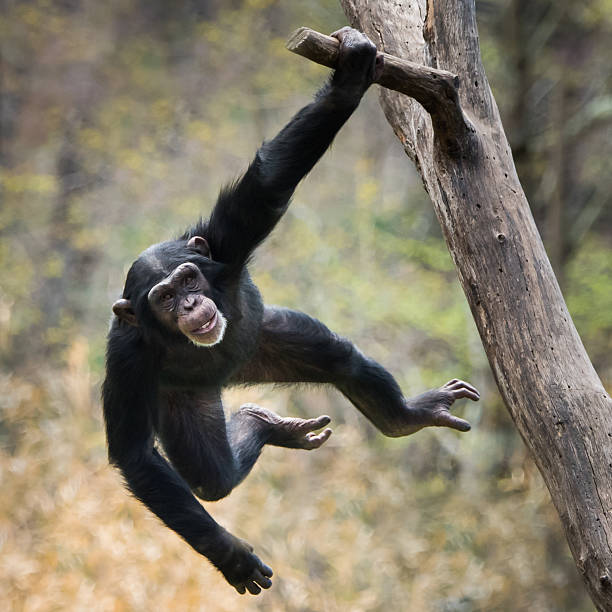
Krishnamurti lecture: 26.May.1966. “When one is awake, with light in oneself, there is no seeking. Only the man in darkness is always searching for light, for more experience…A monkey is restless, scratching itself, chattering, endless movement. So is our mind. One says, ‘I must control it’ and concentrate. We don’t realize that the entity demanding control is still the entity that is like the monkey.”
READ MORE on the "Gospel Of Thomas" page
|
13.July.1967. There are groups which believe in creating perfect outward organizations to bring peace through sanctions and laws; or, by inwardly identifying with principles or ideology. Can there be the cessation of conflict if one is compelled, outwardly or inwardly, to live at peace with yourself and your neighbor?
18.July.1967. Krishnamurti defines solitude as living with ourselves as we actually are. We fear to face ourselves as we are. Conscious striving, will power to improve, trying very hard, necessarily involves thought, which derails spiritual progress. Even to say that one has confidence implies a dependence upon one’s own authority, which hinders growth of the mind.
|
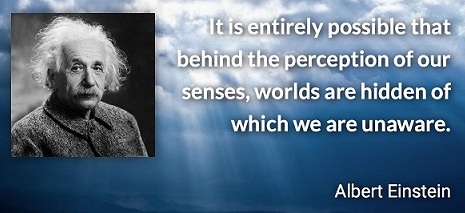
'like a cartoon'
Editor’s note: Mortal eyes can view only a very tiny sliver of the electro-magnetic spectrum, what we call visible light. We see so little of what’s around us that Dr. Dean Radin said our perception of the world “is like a cartoon,” mere caricature, so paltry and diminished, compared to “what is.”
Part of the brain’s function right now is to filter out 99+% of what could be accessed, such that, our senses receive, Radin said, only "one trillionth" of what might be accessed; and so, yes, "like a cartoon."
The unenlightened mind has no idea what's really out there, utterly cloaked by our extremely toned-down five senses.

|
20.July.1967. Maturity has nothing to do with age and time, but only a deep knowing of oneself. One can be mature only immediately, or not at all. Can we look at fear, very attentively, watching every movement, without reaction, like living with a serpent in the room? An artist in ancient China, before painting a tree, sat in front of it for days, months, years, until there was no space between observer and observed, no experience as the observer of beauty.
23.July.1967. What is learning - do we ever learn? from experience, from accumulation of knowledge? With 15,000 wars in the last 5,000 years, are we more wise now? Is learning a matter of time? or does lasting change come from an instant of clarity? To learn, the mind must not have any opinion, conclusion. We are sorrowful beings, with not a moment of bliss, untainted by thought or memory.
16.Sept.1967. “I want to watch myself but, as I am watching, my thoughts wander off, so I try to bring those thoughts back to what I am watching, and so there is a conflict. Whereas if my concern is watching 'what is', I am also watching when the mind wanders off, so there is no contradiction. My concern is watching all the time.”
17.Sept.1967. “I am a living thing.” My mind, my inner being, is a movement, constantly undergoing a change through strain, through pressure, through daily life. And we make a mistake by leading that “living thing” by images of the past. These images prevent the “living thing” that is myself to expand and grow unrestrictedly.
|
‘truth is a living thing’
In his lectures, Krishnamurti states, “I am a living thing” or “truth is a living thing.” What is this “living thing”?
As K describes, and as we also come to personally know, when we become intensely alert, especially in a mental state of “no you and no me,” when psychological “distance” collapses between “subject and object,” when there is no existential separation, we will experience “sparks”, flashes of insight.
As we sensitize ourselves to this process – what is this process? – we begin to perceive the mind, the essential self, as a seething, roiling, churning mass of cognitive energy, in constant flux and movement. It begins to feel, very much, like a “living thing.”
What does it mean, “truth is a living thing”? Truth is a word for reality, “what is.” Universal Consciousness (UC), not matter, is the ground of all being, the elemental constituent, of the cosmos (see on the "quantum" page). Matter derives from UC. To say that truth is a living thing is to acknowledge truth’s linkage to UC. And what is UC? We could say that it is the mind of God.
We are individualizing units of UC. And UC is not only a “living thing” but the source of what we call life. We can feel, deep within, this to be true, this “living” reality, this vibrant, dynamic, pulsating “living” essence, throwing off “sparks” of insight, as we "open a channel" to the molding, shaping influence of UC.
All this needs to be actualized, reified, for us to truly understand. But once the process is under way, the “sparks” come every day – pop, pop, pop – as UC, the ultimate and quintessential “living thing,” reconfigures us in Its own image.
Consider this from Deng Ming-Dao, 365 Tao:
If you spend a long period of time in study and self-cultivation, you will enter ... a world of extraordinary perceptions. You experience unimaginable things, receive thoughts and learning as if from nowhere, perceive things that could be classified as prescient.
Yet if you try to communicate what you experience, there is no one to understand you, no one who will believe you. The more you walk this road, the farther you are from the ordinary ways of society...
To speak to them of the wonders you have seen is often to engage in a futile bout of miscommunication. That is why it is said that those who know do not speak.
|
30.Sept.1967. "Most of us want deep fundamental lasting experience, that will be completely satisfying, that will never be destroyed by thought. So the demand for satisfaction dictates experience.To have great satisfaction is a great pleasure, so pleasure dictates the form of experience we demand. Pleasure is the measure of experience. So in seeking what is true, is there anything which is really holy in life?"
10.March.1968. Can we listen or look without repression or translating into one’s own background? We can clear the subconscious ‘with a single sweep’ if we live without fear.
12.March.1968. “We think experience is necessary. I wonder if it is. We've had 30 million years of experience. Have we learned anything? Is the mind chaste, virgin? Only a mind free from the known, dying every day, renewing itself, can see what is truth.”
|
concepts of 'beauty' and 'pleasure' become colored by fearful thought
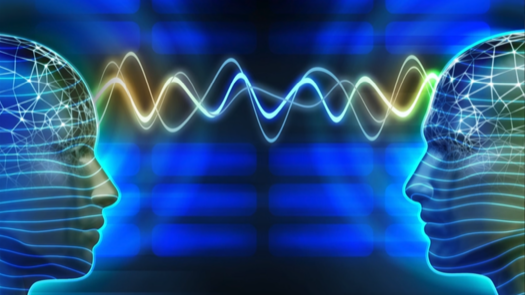
Krishnamurti's discussion of pleasure (in many lectures, but, for example, in the May 18, 1968 talk) in union with thought invites a review of the term "stimulus"; from the internet we learn:
Stimuli (Latin, “goad, prick”) are those actions, acts, or procedures that evoke a reaction from the mind. The stimuli may be visual, audio, physical, or a mix of them. It may be an object, event, or a factor capable of inciting a physiological response. Any of the five senses will respond to a particular stimulus.
Sensory organs can detect external changes (such as temperature, light, sound, etc.) or internal changes (loss of energy results in hunger). The sensory system signals these changes to the brain which elicits a response. The response can be in the form of physical activity (move, run, change shape, etc.) or internal response (perspiration).
A mechanism of stimulus recognition in animals involves:
- Stimulus: A detectable change happens in the environment
- Receptors: The receptors convert environmental stimuli into electrical nerve signals
- Neurons: The nerve signals are transferred to the central nervous system via neurons
- Effectors: Effectors, muscles and glands, produce a response as a result of the stimulus.
Krishnamurti, 27.May.1965. There is a beauty which is not the result of a stimulant, and that beauty cannot exist without great simplicity. Simplicity is not a matter of possessions but comes about when there is the clarity of self-knowing.
Editor's note: The following is excerpted from the article on the meaning of beauty:
stimulation, perception, conception
The dog undoubtedly knows that a large vertical object of rough exterior blocks its path, but to see a tree as a tree requires a certain abstract knowledge, an awareness of a general category of “trees,” as opposed to a certain individual tree. To see a particular tree as part of a larger family of "trees" is a quantum leap, far too high even for good jumpers like dogs.
Dr. Robinson makes an extremely valuable comment by drawing distinction among stimulation, perception, and conception. A lower form of life might be incited to movement by a shaft of light, that is, mere stimulation as a result of photon activity.
Editor’s note: I sometimes make reference to my young-teen state of mind, rather, a lack of it, by comparing a boy's lower level awareness to a worm vaguely aware of a light source. This is not advanced sentience but mere “stimulation.”
And if the bees “see” the flowers, and have some minimal awareness of the “beauty” of color, I would suggest that any such appreciation of floral beauty would be on par, or lower than, that of the dog which does not see a tree as a tree.
Perception, as we learn from Dr. Robinson, moves us up the line of cognitive awareness. A perception is an awareness of stimulation. I think the dog lives on this level. It is aware of stimulation, and also perceives trees, but does not mentally conceive of trees as trees.
Conception takes us a step further, a gigantic one, wherein perceptions are categorized now as ideas of the world, sorted into general headings.
each species sees 'beauty' and 'pleasure' somewhat differently
What we call "pleasure" is the brain's reaction to certain stimuli which evoke positive sensation. Humans are hard-wired to recognize, as “pleasure”, particular stimulus-reaction sequences, but other organisms, a goose, for example, will not "raise an eyebrow" at these sensory awakenings. In other words, much of what we call "beauty" and “pleasure” is a positive, near-autonomic, response to species-specific stimuli.

A great deal of this “incitement to riot” is bio-chem prompted, just a trick Mother Nature plays on each life-form, to encourage reproduction, the perpetuation of the species.
impetus to life
Pleasure serves as impetus to life, moves us forward, "makes the world go round," supplies reason to act; however, if lower-level pleasure becomes an end in itself, if that's all we have, we're led into dysfunction, imbalance, a lack of proportion.
increasing the authority of the body over the mind
Susana Wesley: "Whatever weakens your reason, impairs the tenderness of your conscience, obscures your sense of God, takes off your relish for spiritual things, whatever increases the authority of the body over the mind, that thing is sin to you, however innocent it may seem in itself."
See more discussion in the “waves” article.
pleasure mixed with fear
Krishnamurti says that pleasure is one thing, but it becomes something else when thought gets involved. Thought is like a parasite to the process. When we think about pleasure, he says, invariably fear becomes entangled with the perception; either we say “I wish I had pleasure and fear I won’t get it,” or “I have pleasure and fear that I’ll lose it.”
This fear creates, what he calls, a mental "image", and our relationship with pleasure is filtered through this image. The needy ego gets involved and colors everything with its assessment of “I don’t have enough” because “I am not enough.”
not all aspects of beauty and pleasure spring from bio-chem origin
There is a higher-order of beauty and pleasure which has nothing to do with brain chemicals or reproductive “fever.”
These forms of beauty and pleasure, of zenith and pinnacle levels, issue as a resonance with sacred destiny, an affinity with the celestial infinite, a union with universal consciousness.
READ MORE in the “waves” article
|
17.March.1968. To be free inwardly, to find freedom in an unfree world, occurs when there is a complete relinquishing of the self. In this humility we become an outsider to the world of violence and oppression and begin to live as a human being.
16.April.1968. Why is the world's morality based on acquiring pleasure? Can we see ourselves without any wish to change? We create faux images of reality, of the self, of others, and in this division the entire conflict of man exists.

18.April.1968. We are eager to follow and obey, we fear the loss of psychological security. We make heroes of those who say they know and have experienced. But truth can only be seen, instantly, not experienced. Experience represents the past, our conditioning. A mind seeking reality through experience will never find it. Those called ‘saints’ have conformed to a group-consensus of accepted pattern; otherwise, they would be called eccentrics.
25.April.1968. Society's insistence today on pursuing pleasure becomes a measure of individual isolation and loss of authentic relationship, which union is substituted with an interaction of ego-images, behind which we hide, in fear. A demand for pleasure destroys true relationship as it seeks to use others to mollify the inner terror of aloneness.
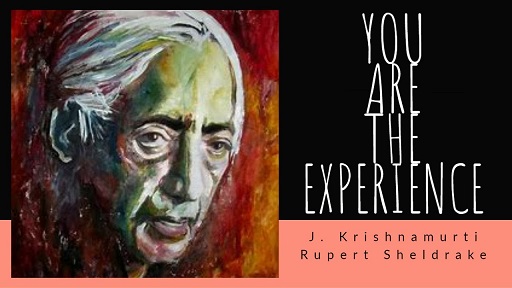
| "Experience involves remembrance, time - which is the past. What we see is a product of our cultural conditioning. Therefore the experiencer is the experienced. You are the experience." READ MORE |
28.April.1968. Communion comes when minds and hearts meet with the same quality of intensity, urgency and fullness. But most are so driven by the intellect that we cling to words, but the symbol, the word, is never the reality. Most of us don't want to be totally free, just free in certain spots which ache.
11.May.1968. People turn on the radio, or a movie, or some distraction, as antidote to the inner malaise, the inner fear. People embrace belief systems, too, as an expression of fear. Further, the John-and-Mary relationship is built upon the same dynamic. They enter relationship for the same reason that others turn on the radio.
12.May.1968. Thought begins to judge, to evaluate, now there is space between the thinker and the thought. In this division is the whole problem of existence, there is conflict, there is choice. Can we observe without the thinker, without that space?
|
Why is it that many people will hate you just for disagreeing with them? They cannot hear you – even if reasonings are cogent and information is accurate.

Many are so identified with an ideal that, if you disagree with it, they will hate you, and some, if they could, would try to kill you.
Why the vitriol? Why not just believe what you want to believe and turn away and not say anything? But today, more and more, we see the venomous political attacks, the vicious statements on social media, the hate-filled rhetoric of those who disagree -- and with an air of moral superiority.
the inability of true-believers to hear you is an expression of allegiance to Dear Leader
When we thoroughly identify with a thought-form, an ideal, a mental picture of utopia – especially, a vision promoted by a Dear Leader, who wears a “mask of piety” claiming moral superiority, stoking the anger of a purported victim class – then the true-believer followers will feel justified to commit any atrocity in support of said utopian vision. The great psychologists call this sense of permission the "divine numen", ie, the approving "nod" from on high.
And what does it mean to “thoroughly identify with a thought-form”?
The dysfunctional ego is led by dark perceptions of “I don’t have enough” because “I am not enough.” And because it feels itself as “not enough,” it will seek for a “strong father figure,” a Dear Leader, under whose mantle the ego seeks for safety and shelter in a hostile world. The ego will “identify” with this external authority, that is, it will “make itself equal to” this faux authority, will psychologically attach itself to it.
And this is why we meet so many people who are so angry when they’re disagreed with. To them, it’s not just an argument to be lost, but it feels like they’re fighting for their lives. They’ve attached their existential sense of worth, and of life itself, to precepts issued by Dear Leader. It is the sought-for security of the little child finding refuge in the shadow of a godlike parent.
'I can't hear you'
Children play the game of "I can't hear you" with a mock, sing-song voice, and then pretend to create a barrier of noise with "la, la, la, la..."
Adults do this, too, when they block you out and can't hear you. It happens when they fully identify with some external authority.
ownlife
In his seminal and prophetic work, 1984 (published 1949), George Orwell coins a term, “ownlife.” Totalitarians encourage their subjects toward a servile docility, an identification and psychological attachment. Those who resist such sublimation of autonomy are accused of clinging to “ownlife,” an insistence on individualization - and as such are deemed to be “dangerous,” “insurrectionists,” “domestic terrorists” by the dystopian autocrats.
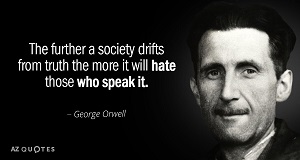
a terrorized mind is incapable of listening
This state of total identification with an external source of salvation, a surrendering of self and critical faculties, is fueled by a terrorized mind – a dysfunction which believes “I don’t have enough” because “I am not enough.” This fearful mental state makes one incapable of living freely, incapable of listening, incapable of opening oneself to the messages of life.
a terrorized mind will block anything that threatens its security and safety
This is why, when you meet a true-believer such as this, you cannot talk to them; no matter how cogent your reasonings, they are incapable of listening. The fearful true-believer did not accept his or her beliefs on the basis of rational argument and careful weighing of evidence, and so they won’t be “argued out of” their mental positions by careful reasoning, either. More information, more content of the mind, will not help them, but only an upward shift in consciousness will solve this problem.
they can't hear you
The terrorized mind of the "inner child" blocks out anything that might threaten safety and security, which they believe will be secured by obediently following the dictates of Dear Leader as "strong father figure".
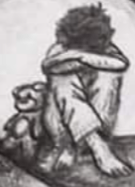
READ MORE on the "true self" page
|
18.May.1968. If love is the product of thought, then there is in it pain, hate, envy, division. If one could set aside all fear, merely see with eyes that have never been touched by the past, all things would be new. Old age does not bring innocency, which is not of time but the ending of yesterday.
19.May.1968. Most of us are afraid, confused, disorderly, contradictory. We hope, despite this confusion, that some kind of clarity may come into being, a clarity that can never be clouded over, a clarity that is not given or induced or taken away, a clarity that maintains itself without any effort, volition, or motive; a clarity that has no end and no beginning. Most of us, if we are at all aware of our inward confusion, do desire this; we want such clarity.
|
‘you must teach yourself’
As denoted earlier, Krishnamurti, in most of his lectures, would stress the importance of “you must teach yourself.” In this, he echoed the sentiment of Jesus in the Gospel Of Thomas who insisted “I am not your teacher”; meaning, you, on your own, must access God and, via his agency, must teach yourself.
But what does this mean? How does one teach oneself if one is unknowledgeable, lacks a sense of direction, and feels empty spiritually? The answer here becomes, feeling empty is how the “false self,” the dysfunctional ego, feels. But this is not who we truly are.
Krishnamurti was correct, and realistic, to admonish, “you must teach yourself.” It is possible to enter this kind of instruction; in fact, we're designed to do little else. I say this with affirmation because I’ve glimpsed the reality of K’s directive. Here’s how it works.
We cannot quiet the mind, as such, but we can become witnessing presence to the mind’s internal disorder. Mentally stand back and simply notice the incessant chatter, the seething neediness of “I don’t have enough” because “I am not enough.” Become a silent Greek chorus to one’s own inner dialogue. This is not “thinking about thinking” as such but wordlessly entering into awareness of one’s thoughts, virtually as a third-party observer.
Editor’s note: If you’ve not yet experienced this phenomenon, the process might sound complicated. While it’s easy to access this vantage point of inner observation, once you get the hang of it, initially it may be difficult as the ego will do all it can to avoid any spotlight of awareness cast upon it. This is the part of us that’s been masquerading as the “true self” but, in fact, plays only second-fiddle.
Now, here’s the important part. When you “stand back” and “see” the internal disorder, you will “feel” the energy of the dysfunctional ego. Why is this important and what does it do for us?
The answer here is undefined, like trying to divide by zero. What I mean to say is, it will be unique, just for you. When we witness and feel the energy of the ego, we will be given a one-of-a-kind perception of what to do or how to perceive what we’re sensing.
'truth is a pathless land'
This is a form of instruction unlike anything we’ve ever known. There is no “one approved way” to do this. Each human being entering this process will experience it a little differently. And this is why Krishnamurti said “truth is a pathless land.” You can’t bottle and sell it for $29.95. It’s a “living thing”, he said.
The deepest part of us is what some call the “soul,” and it’s linked to God, and so when we say that we’ll be given a perception of what to do or how to mentally apprehend, we’re acknowledging that God, in union with the human soul, will offer us flashes of insight as we proceed here. It's private tutoring from on high.
Over time, we’ll be given more and more understanding concerning the nature of the ego, the soul, the essence of good and evil, natural law, what it means to be human - glimpses of God's mind on all of life, love, and the universe. This is the great adventure.
This “journey to the center of being” is not a single day-outing but commences a very long process of unfolding and evolving the soul, the inner person - an effort which will occupy our attention for unending times to come. God needed to invent eternity to unpack all that we -- sparks of God -- have been given.
Begin today. You are as spiritual, today, right now, as you will ever be. Nothing will change, in this regard, when you cross over. Begin the process of unfolding the “inner riches” today.
Editor’s note: To the materialistic mind, all this will seem as hogwash. In our world, we are immersed, every day, all the time, in a negative-energy soup of evil reports: international wars, rising crime, shortages of necessaries, high inflation, civil unrest, "Jack Bauer" internal corruption, personal loss, unfair treatment, the absence of loved ones; we could go on. We see those, who posture as benefactors, prance and strut, smirk and foam, on a world stage, oppressing us with big sloppy grins and hardened arrogant demeanor. In the midst of all this putrid chaos, fraud, sorrow, and danger, who could be bothered to “go within” and discover the “inner riches”? Certainly not the materialists. Special note: Read of the missionary work of Franchezzo in the Dark Realms, how he encountered totalitarian discarnates who rule over sectors of the dark regions. These powerful wicked spirits influence and control the selfish minds of the totalitarians of planet Earth, luring them to enter dark domain upon their demise.
Just as there is a “false self”, which seems so very real to us, so too is there a “false reality,” a “false world” presenting itself to us as the ultimate of “what is.” And yet, how slender and broken the reed which supports this illusion! In just one missed heartbeat, every human being on this planet will face the “real world.” And, according to the reports, seventy-five per cent of Earth’s denizens will spend some time in dark detention: a holding area, in which one will be forced to entertain a “mandated solitude and introspection.” This could last one day or thousands of years of suffering. The duration will be up to each individual.
But why wait until one finds oneself in a “dark closet without walls” to embark upon the greatest quest of one’s eternal life? No need to wait. Start today.
And why should we want to unfold that which is within, our "made in the image" heritage? The materialistic mind has no idea and scoffs at the prospect. And yet the “inner riches” will yet unfold an array of “super powers” that would make the comic-book heroes envious.
|
22.May.1968. Many are so identified with an ideal that, if you disagree with it, they will hate you, and some will try to kill you. This identification with a thought-form, a surrendering of self, creates a terrorized mind, makes one incapable of living, incapable of listening, of opening oneself to the messages of life.
07.July.1968. It is only the spiritual mind that is truly revolutionary. Is there any thought which is not conditioned? All thought is the response of memory, the response of accumulated tradition, knowledge. When you see this clearly, the very seeing may give you the answer.
Why do we not accept the truth instantly?
|
09.July.1968. As we look at the chaos, misery, confusion in the world, what is the central issue as remedy? The central issue is attaining the complete, absolute freedom of man, inwardly, then outwardly. We might say, ‘I agree with that intellectually’ but no action follows. Why do we not accept the truth instantly? It is like the rich person who hears the word 'generosity', and feels vaguely the beauty of it, yet goes back to miserliness. We do not accept, or even see, the truth when we have a vested interest in not seeing it. A man is unwilling to look at the truth because he is afraid. He believes that by looking he will lose his family, his money, position, his job, will fail to get the girl, all the rest of it, which means, he will lose his security and hope for pleasure and happiness. He is frightened to lose his security and therefore he will say he cannot understand the truth, and will refuse to even look at it.
|
11.July.1968. “The theologians and the theoreticians and the various religious people have said, 'do these things, practice, meditate, control, force, suppress, follow, obey' then at the end, that outer agency [of the group] will come and bring a certain miracle and you will be free; see how false that is.”
14.July.1968. "To look at ourselves is one of the most difficult things, to see ourselves as we are. How can we bring about this state of inward awareness? Have you ever tried to examine every thought, every feeling, to trace out the source of these to motive and various layers of the mind? This will reveal the whole content of our conditioning."
16.July.1968. In the East they say, 'We Brahmins are right, are superior, we know', as they assert their dogmas and beliefs, their conduct and morality, all of which creates division in the world. So we ask, is there an action which is never fragmentary, never exclusive, never divided?
|
become astronomer of your own soul, the inner cosmos; study yourself - this is the chief aim of your earth-life
“The first thing is to make resolute search within your heart and make the great discovery of the aim and usefulness of your individual life. He who succeeds in this discovery, and holds firmly to it all his earth life, has made a success, whether he wears purple and fine linen, or homespun. You scan the heavens with telescopes, but far wiser is the man who becomes the astronomer of his own soul, [the inner cosmos]...
the inner cosmos, the final frontier
Study yourself carefully; and also study the seeming simple things of Nature, and you will learn that the secret of life is eternal Progress; and that the Earth life, which is of the utmost importance, is only the primary grade of life. Learn your first lessons well, that you may have a solid basis for your future unfoldment.” Channeled testimony from the other side via the mediumship of W. Aber, presented in the book The Guiding Star:
Editor's note: The Krishnamurti lectures offer excellent guidance on how to "become astronomer of one's own soul."
Reflecting the teachings of the April 16, 1968 and December 10, 1970 discussions, I have created two sister-articles, Parts I and II, exploring the nature of pleasure as basis of the world's morality and ego-images, the cause of distance and division among peoples.
READ MORE
|
03.February.1969. Can the mind, conditioned to think that it can gradually resolve fear, by taking time, through analysis, through introspective observation, gradually become free of fear?
04.February.1969. Each generation revolts against parental conditioning but, in this reaction, merely trades old chains for new. To label "this is a rose" already conditions the observation.
05.February.1969. Can we define death, love, and life, but not materialistically? e.g., death is more than the physical organism's demise but an end of the ego's separateness and division.
06.February.1969. Meditation: entering a condition of "no you and no me"; a quality of silence, with no space or separation, beyond that of the mind and thought seeking for silence.
11.February.1969. Is real change possible? Can the mind transform itself, without time? a revolution inwardly, immediately? Can thought be quiet at all? for only then is there actual transformation.
|
'we are the world, we are society'
Very often, Krishnamurti would caution his audiences against blaming others, seeing ourselves as "above." It's not easy to stand down as there’s much aspersion to cast. Right now, we witness the world marching toward totalitarianism, to a degree not seen since the days prior to World War II. Many of us are angry, and we want to believe that if we could just get rid of “the bad guys,” the ones causing all the trouble, then life would be good for all of us “good guys.” But this is illusion.
The seeds of evil, not always unsprouted, reside within each of us. If sufficiently provoked, if blinded to the light within, each person is capable of any atrocity, any brutality, and more, that we’ve seen in history. In other words, “We are the world. We are society.” We are not exempt, as we too reflect the human condition, and we take the vectors of perdition with us in our travels through life. And until we learn to “go within” to access the inner light, there will be no peace and happiness; not on an individual basis nor for us collectively as the world.
|
the seeds of evil

Star Trek: Next Generation, episode "Violations"
| "No one can deny that the seeds of violence remain within each of us. We must recognize that - because that violence is capable of consuming each of us." |
|
In other words, “We are the world. We are society.”
|
Editor's note: On several pages of WG, I've posted the following item on the work of Tom Campbell.
'the truth is not a fragile thing and will eventually rise to the top of a heap of competing ideas'
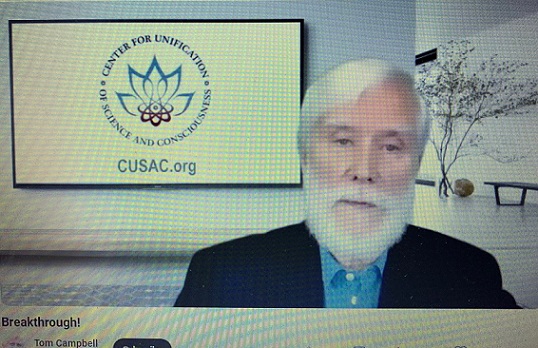
Physicist Tom Campbell, in clear language, explains the history and significance of the quantum mechanics revolution of 100 years ago, how its implications were denied by materialists, and why, as Tom sees it, its proper explication might lead to a better world, free from the power-control-force paradigm afflicting all of us today.
READ MORE
12.February.1969. Love, true romantic love, cannot be cultivated - like a plant, water it, nourish it, look after it. If you could do that, it would be very simple, but unfortunately it does not work that way.
13.February.1969. Are you watching the self from within or without? If without, then you are not related to “what is.’ The thinker-ego is outside. Be choicelessly aware, from the inside.
19.February.1969. An excellent explanation on thought as product of our cultural and experiential conditioning; which means that egoic thinking is always old and cannot free us.
12.March.1969. What is true religion? How to face one's life honestly, without distraction. Is it possible to truly change our lives? Organized belief with dogmas and rituals is not true religion.
16.March.1969. Can the mind be free of fear? The outward expression of freedom is becoming more rare in the world, but most rare of all is psychological freedom, inward freedom.

22.April.1969. Pleasure and pain are opposite sides of the same issue; the ego's desires and cravings are expressed through a filter of past experiences. Must I always live in a pleasure-pain duality?
25.July.1969. Can one's darkness be dispelled by another, by a teacher or guru? What is this craving of the ego to evade personal responsibility, to seek for external authority, on all levels of life?
06.September.1969. Living without resistance: belief systems cause division; when trying to change hate or fear, there is the 'me' changing it; instead, observe hate or fear without the observer.
07.September.1969. We are hardly aware of our inward psychological structure and its dangers, much less so than physical dangers. Our thinking is the result of conditioning by society.
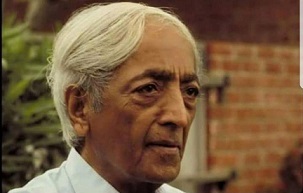
|
“The ‘real’ is near you. You do not have to seek it. And a man who seeks the truth will never find it. Truth is in ‘what is,’ and that is the beauty of it. But the moment you conceive it, the moment you seek it, you begin to struggle, and a man who struggles cannot understand. That is why we have to be still, observant, passively aware.”
|
09.September.1969. The world helps me escape myself - the religions, the books, all say, run away; the world makes me a hard, cruel entity, but I can't get rid of it just by knowing this.
11.September.1969. Can I live completely without resistance? the ego makes comparisions to feel "more"; to believe in something is to resist every other form of belief, because I am frightened.
|
'the basic oneness of the universe is not only the central characteristic of the mystical experience, but is also one of the most important revelations of modern physics'
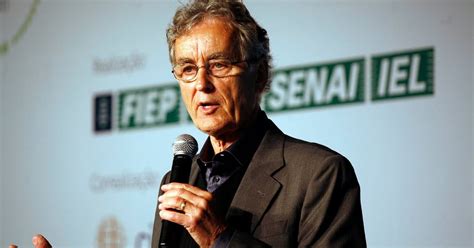
Dr. Fritjof Capra, theoretical physicist
"The most important characteristic of the Eastern world view … is the awareness of the unity and mutual interrelation of all things and events … a basic oneness. It is called Brahman in Hinduism, Dharmakaya in Buddhism, Tao in Taoism… Buddhists also call it Tathata, or Suchness: What is meant by the soul as suchness, is the oneness of the totality of all things, the great all-including whole.
division is illusion
"In ordinary life, we are not aware of this unity of all things, but divide the world into separate objects and events. This division is … not a fundamental feature of reality [but] an illusion. Hindus and Buddhists tell us that this illusion is based on avidya, or ignorance, produced by a mind under the spell of maya. The principal aim of the Eastern mystical traditions is therefore to readjust the mind by centering and quietening it through meditation.
mediatation allows one to access the essential oneness of the cosmos
"The Sanskrit term for meditation samadhi means literally ‘mental equilibrium’. It refers to the balanced and tranquil state of mind in which the basic unity of the universe is experienced: Entering into the samadhi of purity, (one obtains) all-penetrating insight that enables one to become conscious of the absolute oneness of the universe.
particle physics confirms
"The basic oneness of the universe is not only the central characteristic of the mystical experience, but is also one of the most important revelations of modern physics.
subatomic particles, an integrated whole, interdependent
"It becomes apparent at the atomic level and manifests itself more and more as one penetrates deeper into matter, down into the realm of subatomic particles [which] are all interconnected, interrelated and interdependent; that they cannot be understood as isolated entities, but only as integrated parts of the whole."

|
13.September.1969. The exhibition of outward simplicity is not necessarily inward simplicity. That is something different. Simplicity means to have no conflict, no burning desires, no ambitions.
14.September.1969. Meditation: discovering truth by claiming total freedom for oneself from all forms of authority, not necessarily to reject what others have said, but to discover truth on our own.
04.November.1969. How to live in a world in which all philosophies, political systems, religions have failed? How can we change the world when we take the dysfunctional egoic mind wherever we go?

12.November.1969. We are human beings, not of this-or-that group, we are not labels. We are not to face life as a conditioned mind. Is it possible to remove, immediately, all our conditioning?
16.November.1969. Can we observe without seeing the past? the hurtful memories coloring perception, so that when I meet you next time I see you as my enemy? Can the mind break its conditioning?
23.November.1969. Science is based on accumulative knowledge. Is there another way of learning, always moving, but, in its fullness, is never accumulating? to access knowledge instantly?
26.November,1969. Can the mind burdened with the past, with experience, with all that it's acquired through centuries, can such a mind enquire into the unknown? Can one know oneself?
30.November.1969. How to have a whole mind. Can thought and thinker become one? This fundamental mutation can occur only when one allows oneself to enter another dimension of being.
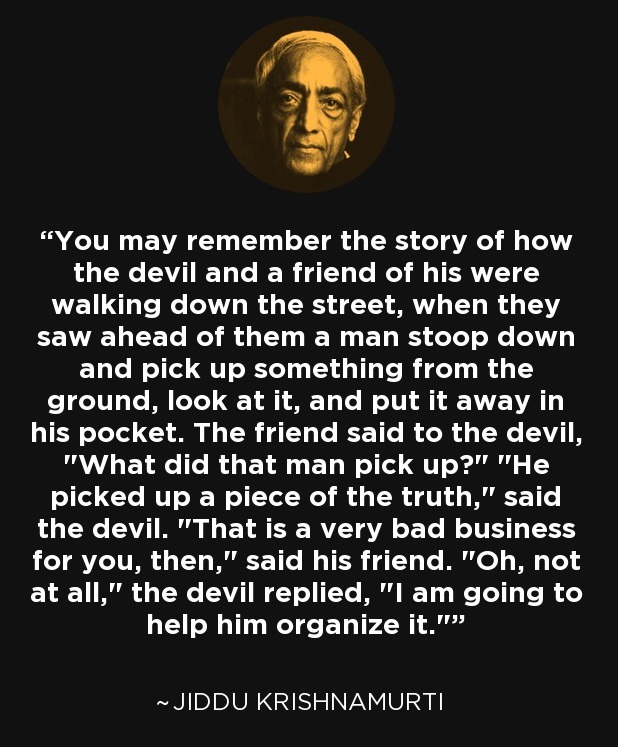
17.December.1969. We find ourselves beset by vanity, pride. This stops us from learning. We must observe vanity in oneself to understand humility. It's only the humble mind that can learn.
28.December.1969. Belief is disorder. Your belief, my belief, all belief based on fear promotes disorder. Ironically, we adopt belief systems to give ourselves safety and security in a world of disorder.
31.December.1969. Humility cannot be cultivated but only accessed instantaneously. It is a mind learning, moving, offering no resistance. It cannot say “I am” because it’s a living thing.
|
a universal theology is impossible, but a universal experience is not only possible but necessary A Course In Miracles
As one surveys the vast corpus of afterlife literature – thousands of near-death experiences, thousands of books with channeled information, thousands of messages via psychic-medium – while there is confirmation for certain elements of the next worlds, one quickly discovers a wide variation of philosophical tenet. Some believe in reincarnation and past lives, but others over there scoff at the notion; some emphasize a missionary zeal for spreading the evidence for the afterlife, but some adopt a more laissez-faire approach; some believe that a new golden age of spiritual knowledge is soon to engulf the Earth, but another camp warns of a potential neo-Dark Age.
In all of this vast diversity of opinion, among the billions on the other side, some of whom communicate with the Earth, how is one to arrive at a measure of clear vision?
All of these sometimes-clashing views represent a philosophy of living, a “theology,” as the Course has it. But theologies and belief-systems represent a mental conditioning, thinking rooted in the past, just private judgments in the marketplace. In all of this division and separation, says the Course, we will never achieve a “universal theology.” What then can bring us together? One thing only – “a universal experience.” We gain this by “going within.”
Two people, in this world or the next, if asked to offer an opinion, will never express an entirely similar view; and this is abundantly clear to the reader of afterlife research. However, if we “go within,” in an honest and authentic way, then, you and I, and everyone, will experience the very same Universal Consciousness.
This kind of apprehension of reality does not reflect belief-system or conditioning - because it is not a product of thinking. As such, it becomes the basis upon which our future cosmic oneness is built.
|
04.January.1970. “You will see what a slave you are - slave to tradition, slave to books, slave to ideas. Intellectually you imitate, you copy, you repeat. You're second-hand intellectuals.”
31.January.1970. “Watch the mind. Don't correct it. Don't say, 'This thought is good, that is not good,' just watch it. Then you will see a watcher and the watched. There is a division. The moment there is a division there is conflict. Can you watch without the watcher?”
|
each gets a chance to say something on how God personally offered a lesson
|
“So here’s what I want you to do. When you gather for worship, each one of you be prepared with something that will be useful for all: Sing a hymn, teach a lesson, tell a story, lead a prayer, provide an insight… Take your turn, no one person taking over. Then each speaker gets a chance to say something special from God, and you will all learn from each other.”
the apostle Paul, I Corinthians 14:26-33, The Message translation
|
"A universal theology is impossible," says the Course In Miracles, "but a universal experience is not only possible but necessary." Paul’s small-group house-churches brought this principle to life in a practical way.
Each person was encouraged to share with the group how she or he had received an insight or lesson-for-living from God. Memorizing or quoting scripture was not emphasized, as the resultant numerous interpretations would only divide the group and then the world into thousands of sects and denominations; instead, Paul instructed,
“Tell us how God taught you personally, even in a small way, this past week. Maybe just a glimpse or brief flash of light. When you searched your own mind, when you meditated and communed with your own soul, what did you see, what were you given from God?”
God has no favorite kids but impartially teaches all, individually, who are willing to learn. God does not offer knowledge with a closed-shop, command-style, holier-than-thou, top-down pedagogy. The letters of John, as well, declare that God, via the spirit, will personally teach us about all the big issues of life (I John 2:27). This is the real "word of God," delivered to each human heart and mind, opened to receive it.
There can be no societal division or separation when religion is approached with this non-hierarchical, non-dogmatic, individual-centered mode of teaching but, instead, a “universal experience” based upon each person’s account of God’s private tutoring.
| William Ralph Inge, (1860-1954), Dean of St. Paul's Cathedral, London: "On all questions about religion there is the most distressing divergency. But the saints do not contradict one another. They all tell the same story. They claim to have had glimpses of the land that is very far off." |
Editor's note: Paul’s decentralized formulation of religious instruction reflects not only a respect for the dignity of each individual but a Gnostic perspective.
A pastor friend of mine, a good man, when he read the above item concerning Paul’s house-churches, commented with sincerity: “But isn’t there a danger in following one’s own ‘revelation’? How can we know if these messages are from God?” I responded, “Yes, there is a danger. For this to work as it should, one must be very honest with oneself, and not veer into illusion. The dysfunctional ego loves to wear a mask of piety and it will attempt to deceive with thoughts of pride and self-promotion.”
All this acknowledged, let us explore the alternative. The caution voiced by the pastor, in various forms, has been codified as official position in the Church at large: “The people are sheep. They will go astray if there is no representative of God to lead them. Thinking for oneself is the playground of the Devil (if there were such a being). Much better for all to adhere to time-honored doctrine; this way, we all speak the same thing, which promotes harmony and unity in the Church.”
In other words, that “alternative” is to allow someone else to do your thinking for you. Surrender your brains when you walk through the church door. Keep your opinions to yourself; better yet, stifle them, and believe.” The very word heresy means “opinion.”
The so-called “Church Fathers,” writing in the few hundreds of years after the time of Christ, often attacked the Gnostics, authors of “The Gospel Of Thomas” and many other documents (some of which pre-date the canonicals). In the missives of “the Fathers” the Gnostics were lampooned for allowing followers of Jesus to offer their own “revelations” at church meetings, pretty much exactly in line with what Paul promoted in Corinthians. “They trust in their own imaginations,” said the Fathers, “are all over the place with various crackpot ideas and concepts. Who can keep track of them all? This will end badly with a great many splinter-groups representing a hodge-podge of beliefs.”
Strangely, history unfolded precisely opposite to what “the Fathers” predicted. The Gnostics, allowing each to speak, with their many interpretations of how God works in the world, enjoyed relative peace and harmony – while “the Fathers,” the forerunners of Big Religion, would witness, over time, their efforts at strict mind-control devolving into tens of thousands of factions which have divided Christendom to this day, and continue to do.
READ MORE on the "Gospel Of Thomas” page
|
10.December.1970. The ego’s image-forming process is a way of not getting hurt. If you insult or flatter me, I react, and that reaction builds an image. The reaction comes about when there is no attention to “what is.” But when I am completely attentive, with choiceless awareness, then there is no image-forming at all.
13.December.1970. What is thinking? Thought is the response of memory, memory which is experience, which is knowledge, conditioned by one’s culture. Thought is never free, is always old. Is joy totally different from pleasure? Thought picks it up, reduces it to pleasure and says, "I would like to have that joy again".
17.December.1970. If the mind, as some say, is an inner cosmos, with a depth and infinitude rivaling that of the outer, then why does the mind so often feel small and overwhelmed with "the chattering" in the head?
what every new person to spiritual practice must understand
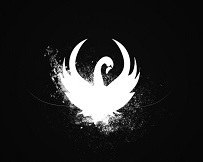
| Breakthrough: “Spiritual practice must be uninterrupted. We may be anxious because we see very little happening on a daily basis, but we must be patient… After long self-cultivation, one’s accumulated energy reaches a threshold and then bursts out, like a swan rising from the water… Once you have reached this level of stored energy, you will be a different person.” Deng Ming-Dao, 365 Tao |
|
a sense of individuality, the knowledge of self: the most pernicious program of all

Star Trek: Next Generation,
episode "I, Borg", featuring Hugh
|
“The sense of individuality, which he has gained with us, might be transmitted throughout the entire Borg collective, every one of the Borg being given the opportunity to experience the feeling of singularity – perhaps that’s the most pernicious program of all -- the knowledge of self, being spread throughout the collective, in that brief moment, might alter them forever.”
|
|
20.December.1970. A mind clouded by belief, which is based on the desire for comfort, security, cannot possibly see what truth is. Are you, when you are listening, observing your own belief, your own conclusion? Is the self, the "me", a living thing, constantly changing, constantly moving?
24.December.1970. I am watching myself - my speech, the way I talk, my gestures, my violence, my kindliness. Now is the watcher different from the thing he is watching? that is, the watcher who says, "I am learning about myself", is he different, an outsider, watching what is happening? or is the observer the observed?
06.January.1971. Can one listen without any conclusion, as you would listen to music, to something which you really feel that you love? Then you not only listen with your mind but also with your heart, listen with care, objectively, sanely, with attention to find out.
10.January.1971. When you are angry, a second later the observer comes and says, "I have been angry". He has separated himself from anger. He has named it, named the feeling as anger. Why do we separate ourselves from the anger and why do we name it?
13.January.1971. Truth, that sacred inner silence, has no words, and if you have gone that far, then you are enlightened and do not seek anything, you do not want any experience; then you are a light, and that is the beginning and the ending of all meditation.
|
‘notice the disorder’
Krishnamurti frequently admonishes “notice the disorder,” do not fight or condemn what is seen with the inner eyes but simply acknowledge.
But, exactly which aspect of the disorder are we to focus on?
We are not to focus on the disturbing “images” themselves. These can be quite horrid, and we don’t want to encourage or fix these upon the memory. Yet, while we do not like their presence, we are not to “fight” these images. How to handle this?
I have learned, by trial and error, how this process is to work. Try it for yourself and find the right way, for you, to mentally apprehend. Instead of “fighting” the image, or saying “I ought not to be seeing this in my head” -- which creates a sense of conflict and strengthens the ego – try to switch one’s focus to the underlying energy. Yes, there may temporarily be a sordid image by which the ego torments, but can you “go beneath” the image and focus on the energy that’s propping it up? You’ll need to work with this, trying different approaches, to see what I mean, but, when it works for you, you will easily slip into a mode of simply “noticing the disorder” - not the image but the underlying energy.
This, I believe, and sense, is an incredibly important mental skill. The mind serves us in many ways but, one primary way, is to become for us a virtual “radar screen” which will immediately evaluate all energies that cross its field of purview. When we become skilled at this, we will instantly perceive an energy that is “out of alignment” with the spirit of God.
The rational part of the brain is not involved at all. It’s pure intuition at work. And now we’ve entered the realm of which the apostle Paul spoke concerning those who “live in the Spirit.” These, he said, judge all things, discern all things. And it’s done instantly, without the rational mind making a decision. Instead, the mind, now sensitized to alien-ungodly energies, automatically flashes a warning on the “radar screen” of the spirit-led mind.
And this entire process of discernment is developed by “simply noticing the inner disorder.” One’s ability in this area of expanding consciousness will just grow and grow, unlocking more and more of the soul’s inner riches. As Kairissi joked, “next thing you know, you’re 5 billion years old and aware of every life form in the universe.”
|
17.January.1971. Observe the disorder in yourself, but without trying to bring about order; just observe it, as you would a sunset, unable to do anything about that sunset. In the same way, observe the disorder without any sense of choice, just wordlessly observe. Then, out of the non-judging awareness comes an order, not according to a blueprint, not a mechanical order, but a living thing.
30.January.1971. No book can teach you about yourself, no holy scripture, no professor, no philosopher. What they teach is what they think you are and what you should be; their opinion, not yours. For centuries, you have accepted the authority of others. In this diminishment of self, when a mind is afraid, it cannot see truth, becomes dull, incapable of thinking rationally.
07.February.1971. People speak of finding the truth. To find the basis of truth we must be able to see clearly without any distortion; without resistance, without prejudice, not caught in any formula or system. This quality of freedom allows one to see ‘what is’ and this leads us to the truth, which is reality.
10.February.1971. One of the universe’s great paradoxes: true spirituality, one’s higher sentience, a better level of consciousness, is not obtained by working or trying very hard, by religious rituals, by prayer, fasting, vow, or pilgrimage - but simply by quietly observing the inner disorder.
14.February.1971. There is no freedom when you depend on somebody, and when you depend on somebody psychologically, inwardly, you are seeking comfort, and so you must dominate that person or submit yourself to that person. You will see that the source of this dependence is fear, fear of not being able to stand alone, fear of never finding happiness.
17.February.1971. “When you have choice, you have contradiction. When I do not know what to do, I am confused, and out of confusion comes choice, and out of choice the action of will. Meditation is a movement in which there is no action of will whatsoever.”
|
this world cannot be fixed, only forsaken; it cannot be saved, only transcended

Destruction of the Beast & False Prophet,
1804, Benjamin West
Some people believe, with better teaching, more education, societal growth, we will eventually, gradually, turn this planet into an oasis of spirituality. But there can be no “gradually.” The system itself is rigged against us -- and this system is you and me, the collective unenlightened mind.
In this darkened mind, the metaphoric Beast and False Prophet -- proclivities toward Brutality-Force married to Deception-Propaganda -- reign with iron fist. No matter how many times in history – seven times, and seven times seven – they're beaten back, they always rise again, and keep coming at us, and keep coming at us, because the dysfunctional neediness of the “false self” cannot help itself but to create these evils.
metaphors of the incessant rise and fall of evil in history
The Beast and False Prophet do not give up because human dysfunctional-ego neediness does not give up. It's why, according to Revelation, this Evil Duo is “thrown alive into the lake of fire.” They’re “thrown alive” because they never give up, cannot be reformed, cannot evolve into something better, and will go down fighting - not by a gradual, incremental program of the world becoming better and better; no, they’ll be gone in one blinding flash, one incendiary moment of blazing cosmic insight of enhanced consciousness. As the great mystics teach, the world doesn't need "more time," a gradualism, to become perfect, but only an accessing of the timeless, one blazing eternal moment of clarity.
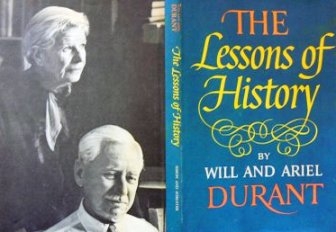
Real change in society, as historians Will and Ariel Durant came to see, comes, not by power and force but, only by way of philosophers and saints. It is only with a higher level of consciousness that fears and insanity begin to lose their grip on the human psyche -- only then might the illusion of "I have not enough because I am not enough" be snapped. This manumission, alone, and no other factor, becomes the end of evil.
the end of this world's evil begins in the individual heart
The end of the symbolical Beast and False Prophet is not a single universal event. Their demise, the end of their influence, comes to each one of us, each heart and mind, on an individualized basis. Each one of us must represent “the end of evil in the world” – for we are the world, we are society, the ego lives in each one of us, and until we cleanse ourselves by the immolation of better awareness, the Evil Duo retains foothold in the cosmos, and stands ready to come back one more time, and the proverbial "seven" times.

"You are about to embark upon the Great Crusade!"
In the early hours of D-Day 1944, Eisenhower, Supreme Commander of Allied Forces in Europe, wished his men well before their departure to rescue the world from Nazi tyranny. He subtly reminded them of what would happen if they failed - the end of Western civilization. History records that their efforts were successful. Totalitarianism was routed. The world was now free to live in peace.
the end of civilization is always only one deluded and gulled generation away
And yet just 17 years later, January 17, 1961, President Eisenhower offered final remarks before departing office. His words issued as most dire. He warned of the “military-industrial complex” which threatened Americans’ freedoms.
Is this not utterly strange? The mammoth build-up of military arms and bureaucracy to support it, all created to defeat evil in the world, in fewer than 20 years, had grown into a new monstrous deep-state of oppression; here, in America. Eisenhower waited until the last moment of his presidency to speak out, suggesting that the new threat was beyond his power to control and could readily stifle his voice. Kennedy, too, a short time later, would also warn of “secret societies” which threatened all free peoples.
Editor’s note: In the movie “Emperor,” we learn that Japan’s bellicose path in WWII was not prompted by the figurehead Michinomiya Hirohito but by the ambitious warlords. In other words, Japan’s own “military-industrial” deep-state constituted the real seat of power.
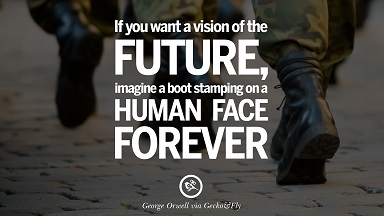
our defeat can come only from within said Lincoln
And now, once again, extending to our day, personal liberties hang in the balance, trampled upon by new Orwellian Dear Leaders; this time, welcomed by the knavish many, they come for us from within, the only source of evil which, as Lincoln warned, might bring us down.
this world cannot be fixed, only forsaken; it cannot be saved, only transcended
Yesterday's liberators might become today's oppressors. It is impossible for this world to know lasting peace and security. But for short oases of individual freedoms, all peoples of history have lived under brutality and subjugation; it seems "we'll soon be getting back to normal." The seeds of evil lie within each human heart, follow us wherever we go, darken our perceptions, and only a generally informed, self-aware populace, said Jefferson, might forestall the dystopian trends of history. There is no permanent solution as civilization can be lost in one generation; anyone older than 35 understands. Salvation in this regard comes from no external source but an awakening within the “made in the image” potentialities of the soul.
arising from the scarcity of the instances

Abigail Adams: "I am more and more convinced that Man is a dangerous creature, and that power, whether vested in many or a few, is ever grasping, and like the grave cries give, give. The great fish swallow up the small, and he who is most strenuous for the Rights of the people, when vested with power, is as eager after the prerogatives of Government. You tell me of degrees of perfection to which Humane Nature is capable of arriving, and I believe it, but at the same time lament that our admiration should arise from the scarcity of the instances."
|
28.June.1979. Buddhist Scholars Discussion 2, Brockwood Park, England: Is there life after death?
|
synthesis
A survey of the major concepts of the Krishnamurti lectures; with my own commentary.
READ MORE
|
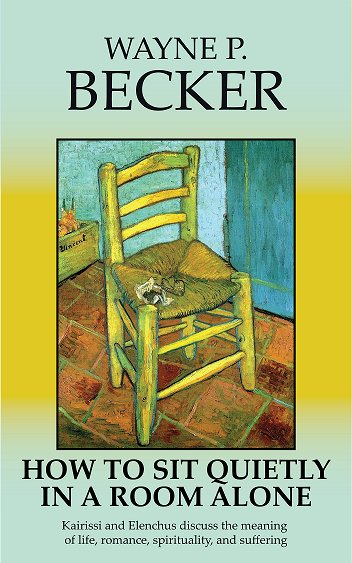
|
The solace of a quiet small room, a sanctum of personal transformation, is a good place to meet the inner state of oneness and non-duality of which Krishnamurti spoke. READ
|
|
Why do family members, old friends, and romantic mates drift apart or even abruptly split?
When my daughter was in high school, she had a girlfriend; the two seemed inseparable. Later, the friend chose an alternate lifestyle, assumed that she’d be judged, then abruptly, and permanently, broke off friendship ties.
An example of my own: In the “Evolution” article I recounted that in senior-high English class I’d delivered a speech on the subject of “Creationism versus Darwinism.” Almost all of it, as I now perceive, was error. However, a good friend since childhood disagreed, summarily rejected me, and put me away with no reconciliation.
the hidden cause of all conflict
Each of us, likely, could offer scores of such examples. Krishnamurti’s teachings on the ego – concerning dualism, fragmentation, separation, division – are not of mere academic interest only to professional philosophers. This information holds the sacred key to understanding why planet Earth is the stage for war and conflict, not just on the international level, nor solely with religious or political groups, but also among family members, friends, and lovers.
Why do people drift apart or become immediate enemies? The short answer is that they become an offense to each other. People identify with, make themselves equal to, belief systems which, they assume, will "make me happy." They say "this is who I am," and "this is what I need to be safe and secure," and if you represent something different, their self-image will be threatened, their prospects of safety and happiness will seem to fold - and then you'll be rejected, no matter the strength of former bonds of amity. You'll be rejected because, don't you see, it's a matter of life-and-death to the ego, of survival and self-protection.
the carefully crafted self-image
In his 17.December.1969 lecture, Jiddu Krishnamurti offers one of the most clear and insightful explanations concerning the inner workings of this dark dynamic. When we feel offended by someone, he said, “there is an image about yourself,” one that we ourselves build. This ego-image reflects one's cultural “conditioning.” Why do we build this image? We do so “as a means of security ... of protection ... of being somebody.”
fear is behind the curtain
And what do we find if we draw back the curtain of this ego-image? “Now, if you go behind that," Krishnamurti says, "you will see there is fear.” What is the composition of this fear? It is the existential fear of "I don't have enough" because "I am not enough."
Let’s analyze this ego-image more closely. Why do we build it? What are we protecting? If we allow ourselves to become very still, if we taste and sample the nature of this hidden fear, we will find that we’re protecting a self-image, a mental projection of what the ego would like to be and have:
“I am the person who needs to be seen as virtuous, respected, worthy of honor. And it goes without saying that I know what’s best for you.”
“I am the person who needs to be seen as right and correct. As such, I need you to believe as I do, to agree with all of my religious superstitions, and my self-serving political views. I need you to accept all of my inflexible opinions because your assent makes me feel, not just safe and secure but, that I’m worth something.”
“I am the person who needs to be seen as successful, 'in the know,' and winning. I want you to be impressed with what I am and what I have so that I’ll be counted as a somebody. I need these merit badges so that I can face my peer group, family, and community and be considered important."
“I am the person who craves to be viewed as a wise person, an in-demand friend, a counselor with ‘the answers.’ I count on you to offer me this prestige so that I can feel good about myself.”
"I am the person who grew up on the 'wrong side of the tracks.' My family culture held great disdain for education and knowledge. This disrespect for anything truly progressive has always held me back, creating for me a self-image of 'I’m not smart enough to succeed. I can't get a high-paying job, that's for other people.' And so if you come to me and suggest that, in fact, I do possess talents and strengths, then I will feel very uncomfortable, begin to panic, as you attempt to lead me out of my dysfunctional comfort-zone. At the first sign, with your help, that I I could actually advance myself, I’ll fall apart, swoon in terror, and then begin to blame you, and hate you, before I retreat and crawl back under the safety of my rock."
"I am the person who is comfortable with present ideas. They've gotten me this far (sort of). And they may be half-baked, a straw-house of illogicality, but, even so, these irrationalities offer a certain veneer of meaning to my life. In support of this charade, I surround myself with so-called friends with whom I share a tacit agreement, an unspoken pact: 'You must agree never to point out the non sequiturs of my beggarly superstitions, and I will agree to act as if I accept yours.' That’s the conspiratorial deal. However, if you come along with hard empirical evidence, well-reasoned positions, and suggest that I might want to take a more honest approach to what I believe to be true, well then, I will have to hate you for upsetting the applecart of my entrenched and time-honored unreasonableness."
"I am the person who carries on the traditions of my family. Unfortunately, these are more like peculiar shibboleths, marks of tribal distinction, but not of honor and dignity. I feel duty bound to ask, “What would mother do?” or “This isn’t the way dad did it.” I don’t have enough self-respect to live my own life, follow my own insights, quest for my own meaning and destiny. And if you come along and encourage me to think for myself, to break the apron strings (years after mom passed on), I will feel frightened, disoriented. And then I will blame and hate you for pushing me toward autonomy, full personhood, and self-realization."
“I am the person who needs you to make me happy. You can be my friend/lover/relative if you do exactly what I say and think just as I think. Anything less than this will be threatening to 'who I am.' I need you to love me -- just as I am, with all of my soft-underbelly beliefs -- to compliment me, to defer to me, so that I can judge myself as ok. Don't let me down, I warn you.”
“I am the person associated with you, and if you disappoint me, if you fall short of my expectations - especially after all I've done for you - if you fail to make me happy, if you begin to take on contrary opinions, then you will become an opposing force to what I want and to the image I’ve created for myself. If any of this happens, then, of course, I’ll have to get rid of you, even though we’ve meant much to each other over long years. I'll have no choice but to shun you.”
And so if anyone – sibling, friend, lover, child, parent -- stands as opposition to any of these ego-images, then the offending person will immediately be counted as an enemy, no matter a long history of cordial relation.
a closer look at the hidden fear
We find there’s more than one curtain to open. The ego’s need to be seen as right, virtuous, properly religious or political, is not the only hidden agenda. As one pierces the levels of self-obfuscation we discover the core terror which vivifies all of the ego’s activities. It’s the fear of death. This is the central terror, as we learn from the great psychologists.
This means that when one is attacked, there may be purported surface issues, but the real reason people rage and become apoplectic is the ego fighting for its life. It's identified with, made itself equal to, being right, virtuous, and all the rest, and if it fails to promote itself with these "images," then it will face a kind of psychological death. “Who will I be?” it asks, if these false-security images are minimized or taken away?
the high cost of following the truth wherever it leads
All this is most dire. The reality is, if you assiduously pursue the truth, no matter the cost or where it might lead, then you will lose (for a time) almost every last person who was once close to you. Why must it be so? - because you will become a living, walking threat to another’s carefully crafted self-image.
narrow gate, without fellowship
Editor's note: In his writings, Andrew Jackson Davis warns of the "narrow gate" that leads to life; few be that enter it. Those who live courageously by following the truth wherever it leads, as Davis points out, “will walk a pathway without fellowship of thy earthly brethren.” The cults have long employed the weapon of excommunication, shunning, and ostracization - a forced separation from friends, workmates, and family - toward anyone who disagrees with the hive mentality. This putting away occurs not just in religion but in dysfunctional families, corporations, academia, politics, and other power-seeking groups. They’re afraid of contrary opinion which might disembowel and expose shallow teachings. And so they’ll get rid of you for spreading "misinformation"; and you, as a truth seeker, will be censored and required to make your way through this world “without fellowship of thy earthly brethren.” But, be assured, a day of reckoning is but one missed heartbeat away.
We, ourselves - not some mythical Satan - are the focal point of all evil in the universe. It’s the pathological ego within; it’s the false self, the ego-images, ever attempting to find safety and security for itself, to bolster an inner neediness, the existential emptiness deep within.
We cannot become truly educated, nor reach a good level of wisdom and maturity, in the highest and best sense - or meaningfully prepare ourselves for Summerland or to be with one’s Twin Soul - without understanding the wiles and machinations of our own personal “heart of darkness.”
please, it’s very impolite of you to notice that I lack a self
Soren Kierkegaard: “But in spite of the fact that man has become fantastic in this fashion [i.e., lives unrealistically by denying his own mortality and impending death, the terror of which is covered up by palliatives such as ritualistic, form-based but empty, religion], he may nevertheless … be perfectly well able to live on, to be a man, as it seems, to occupy himself with temporal things, get married, beget children, win honor and esteem – and perhaps no one notices that, in a deeper sense, he lacks [an authentic] self.”
|

|

















































